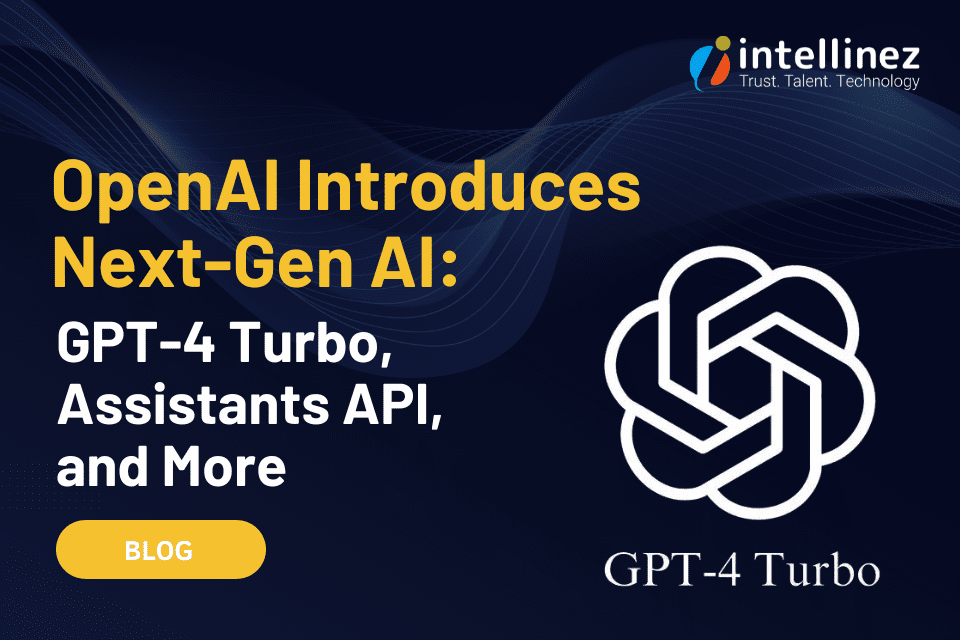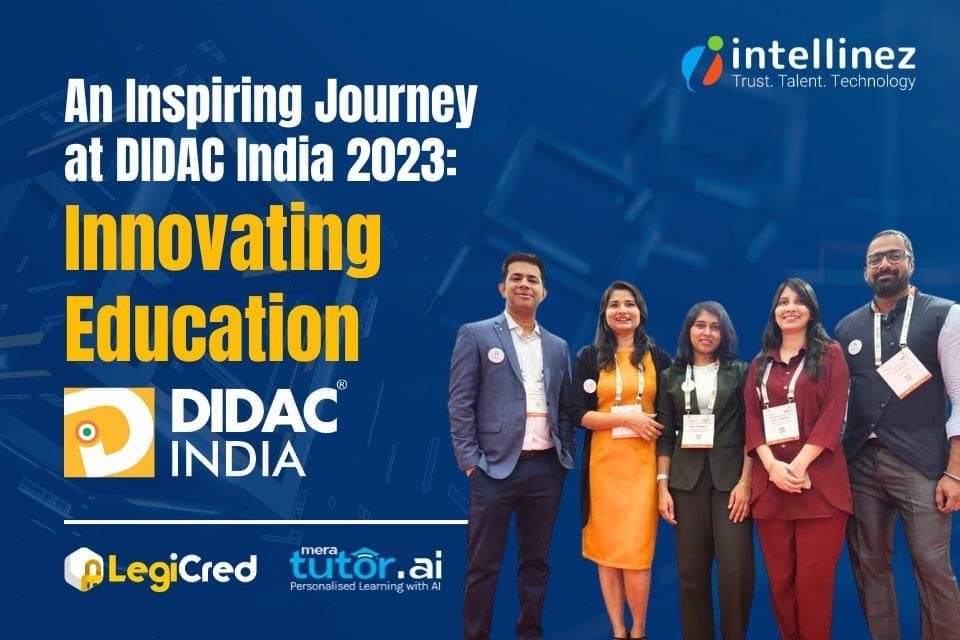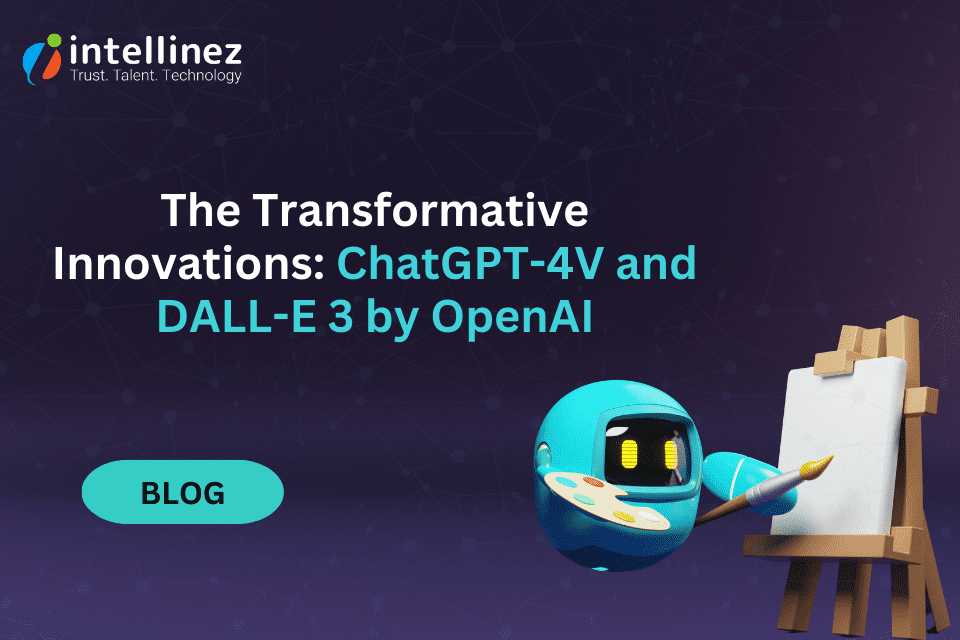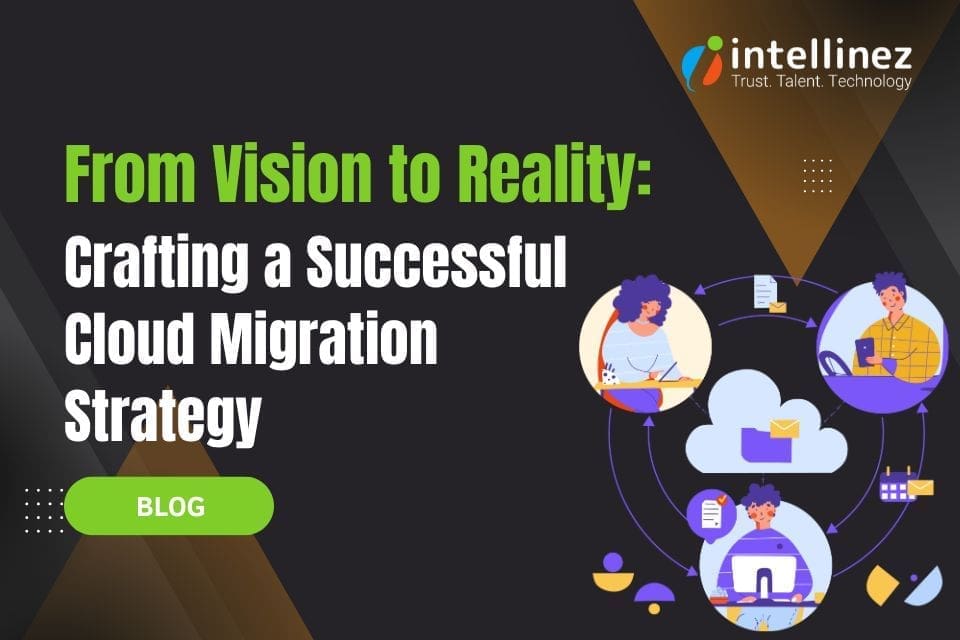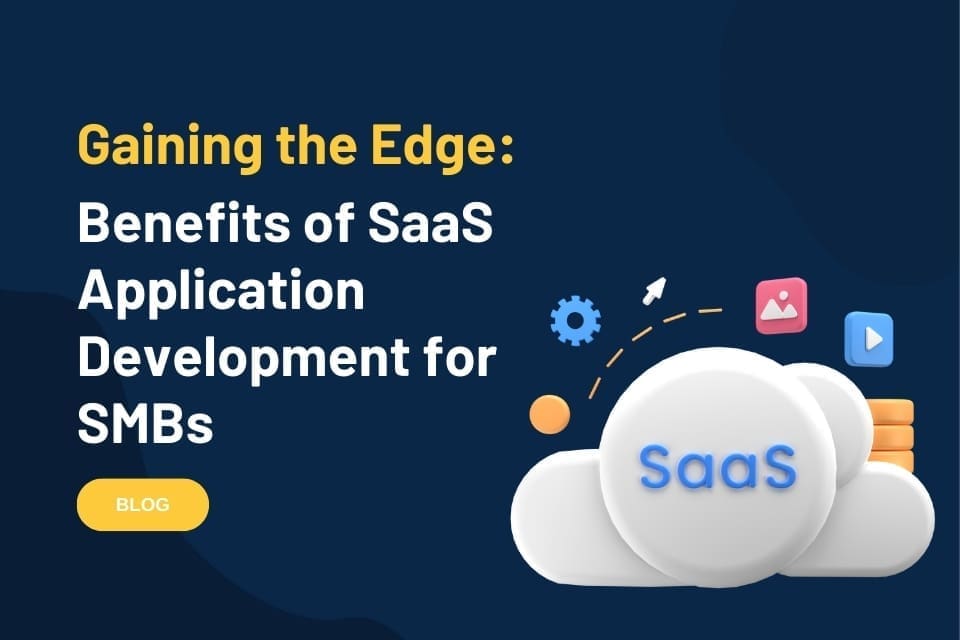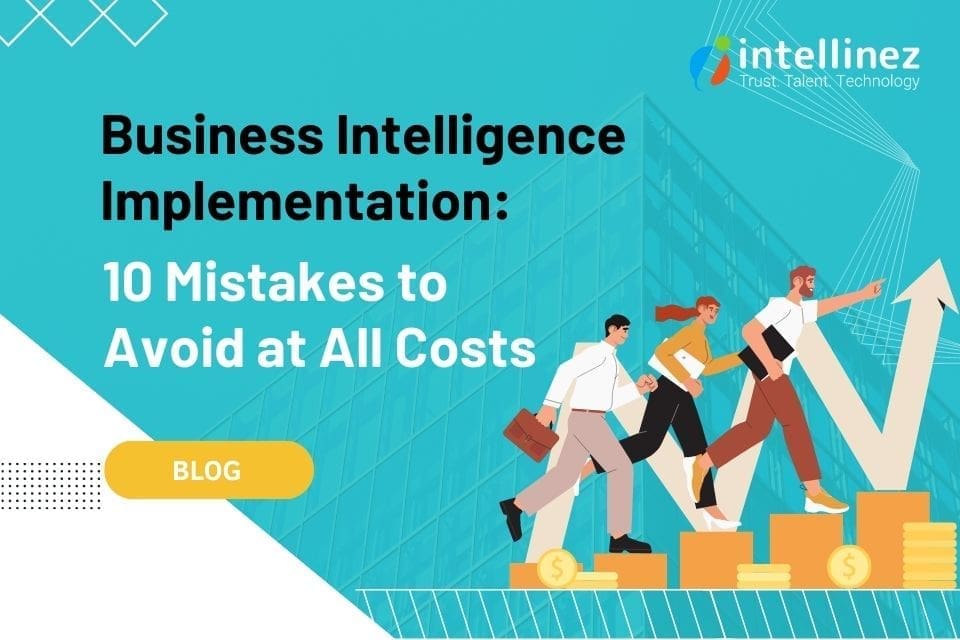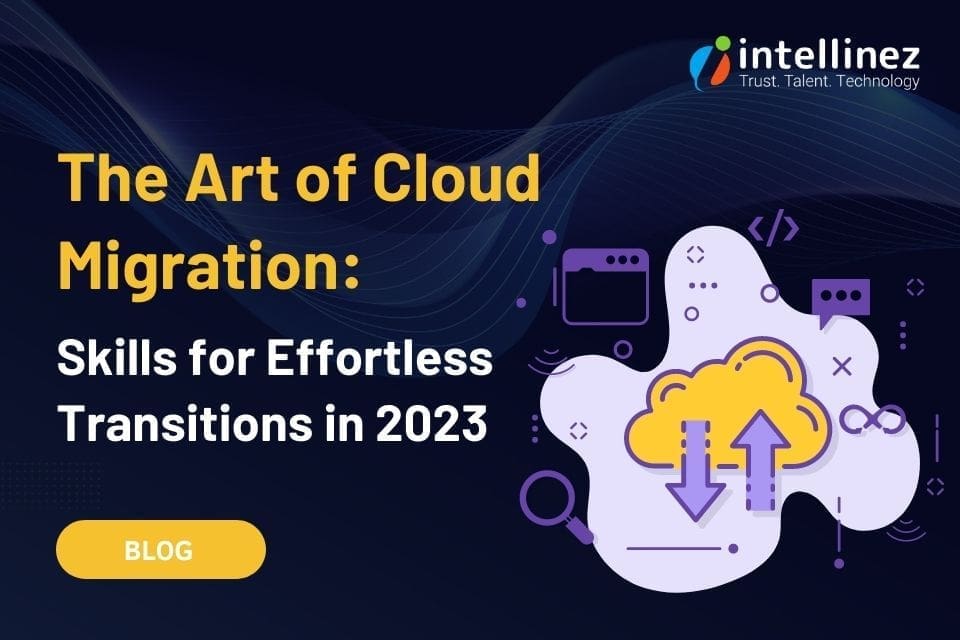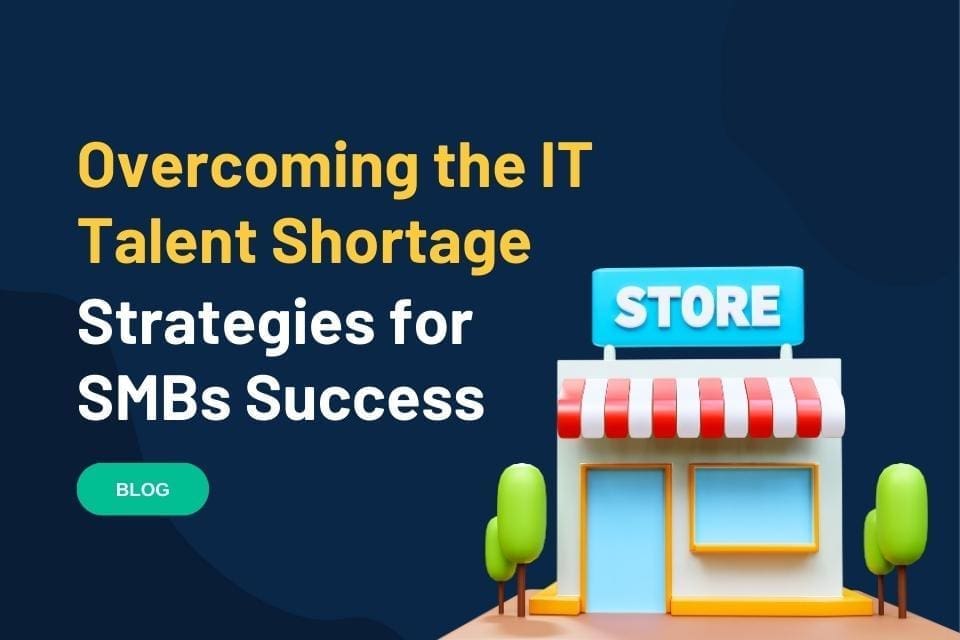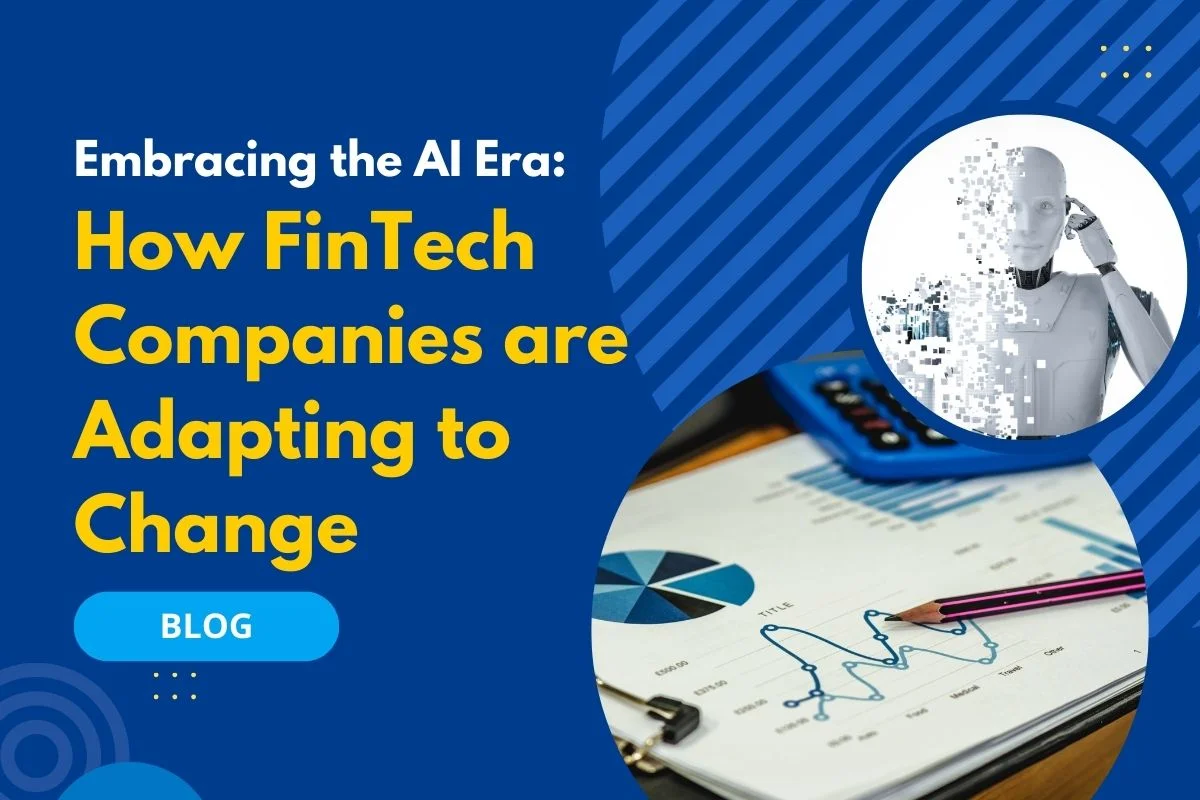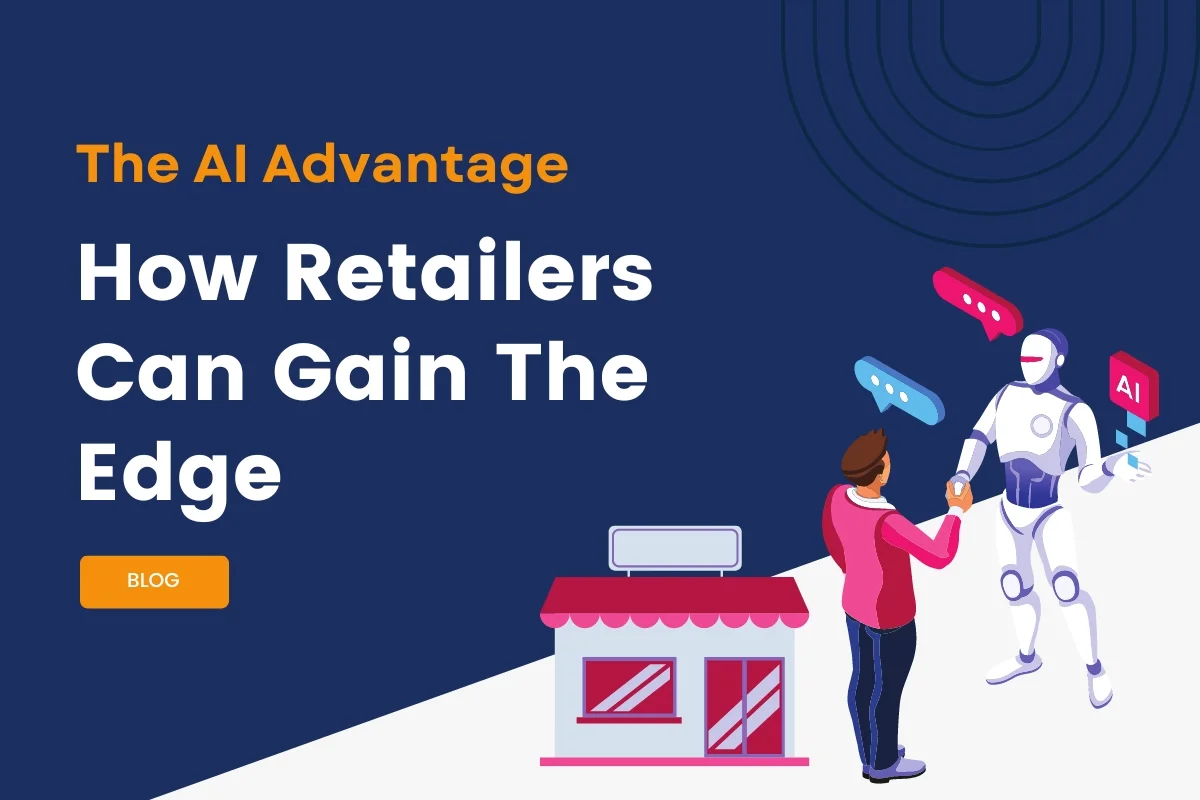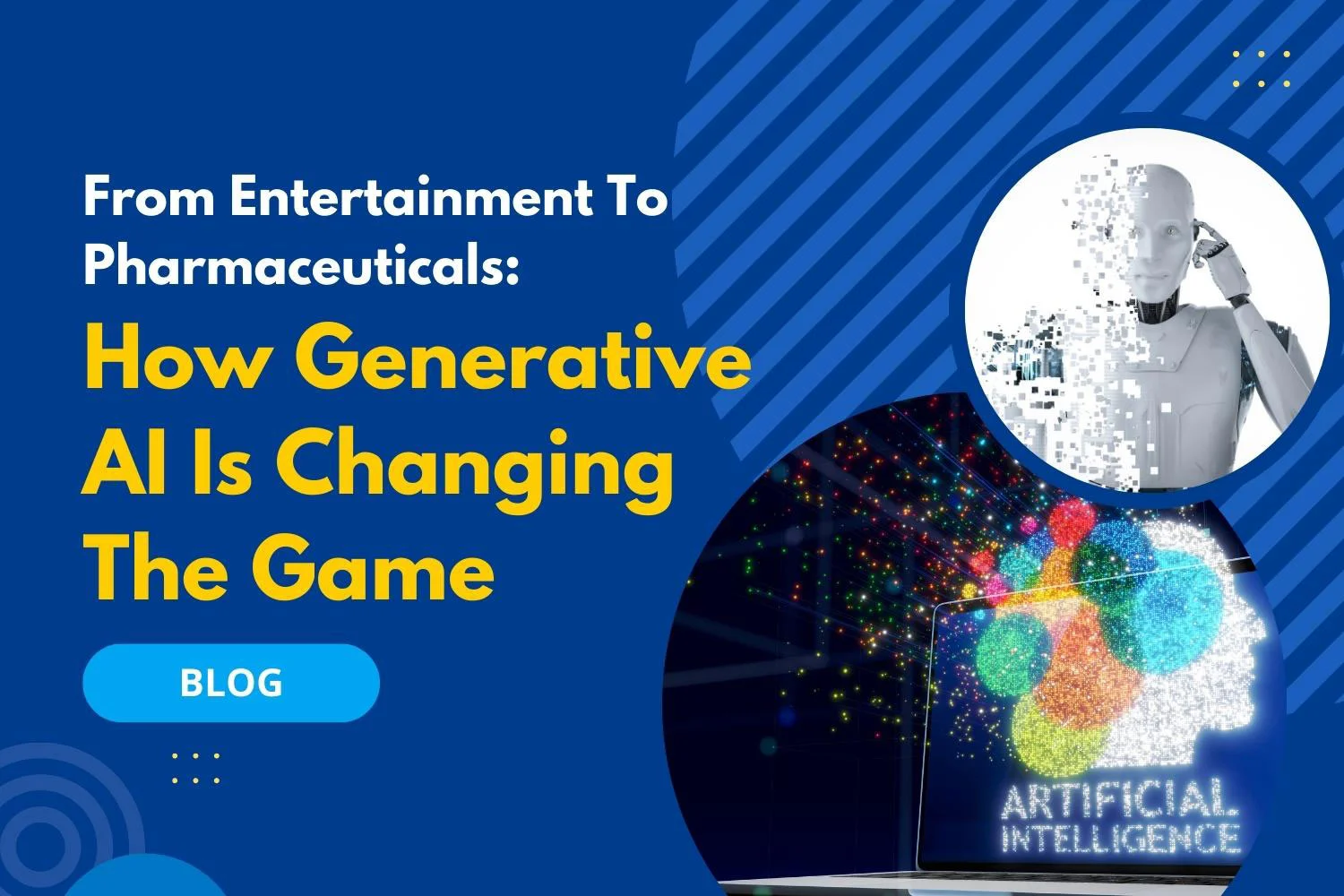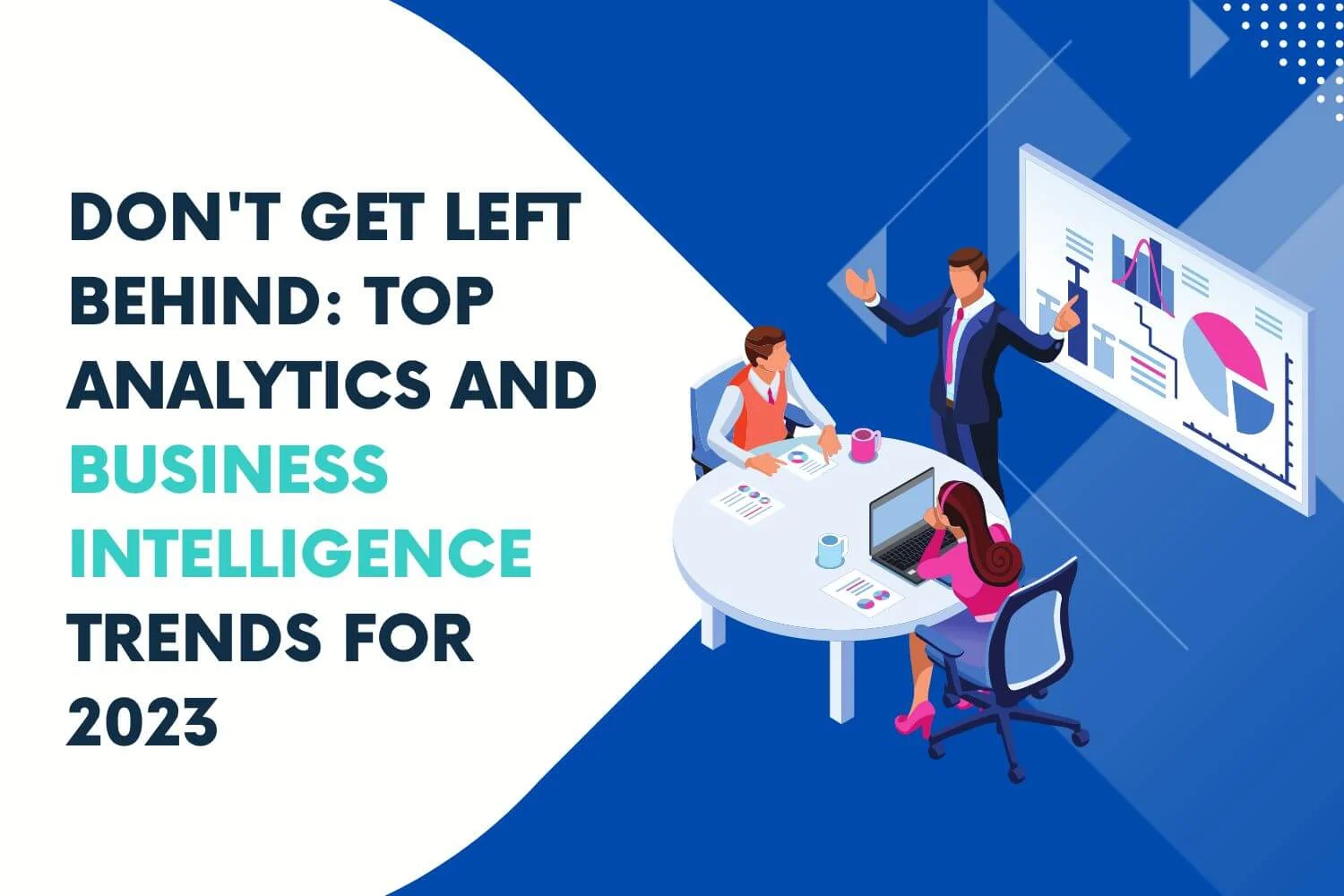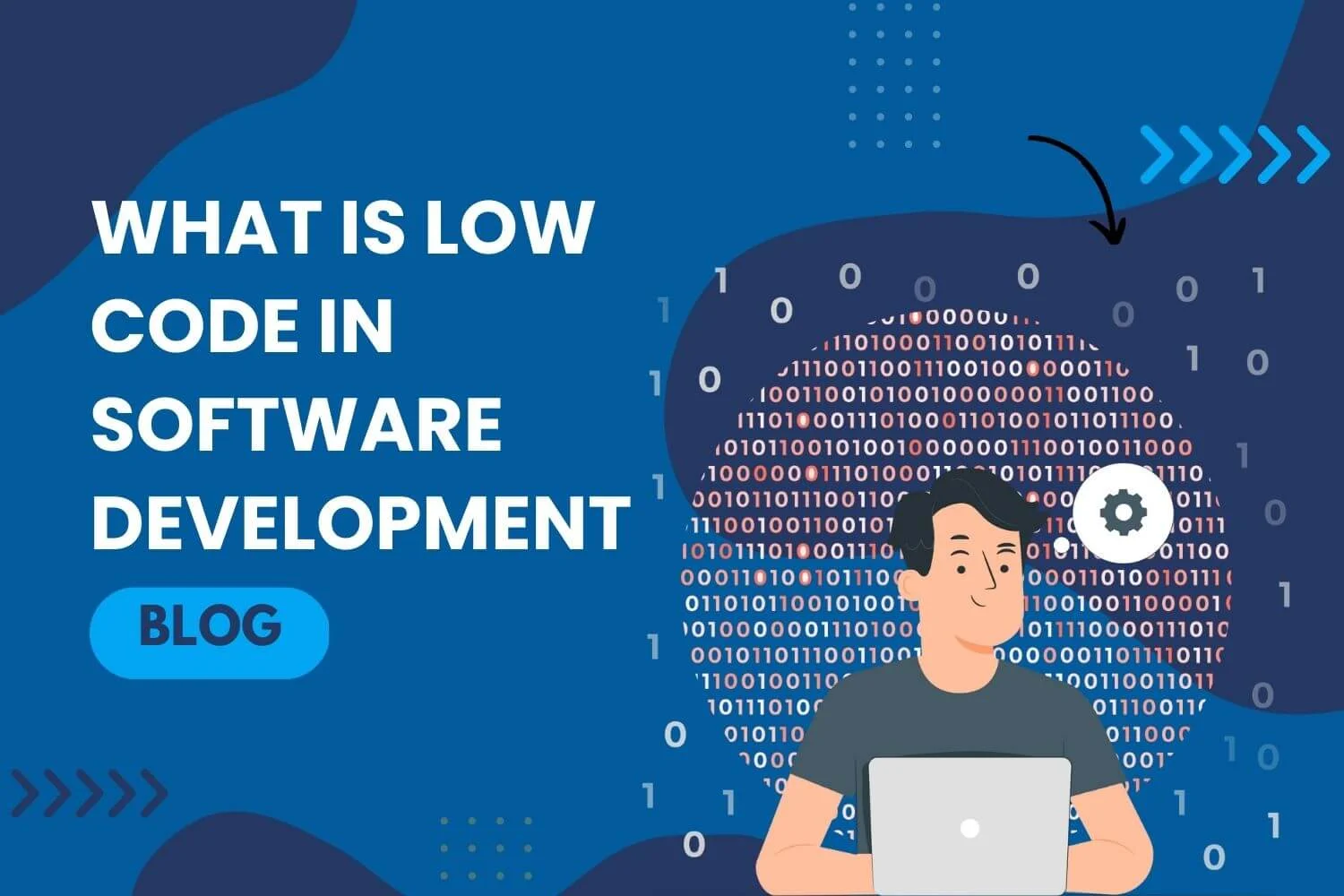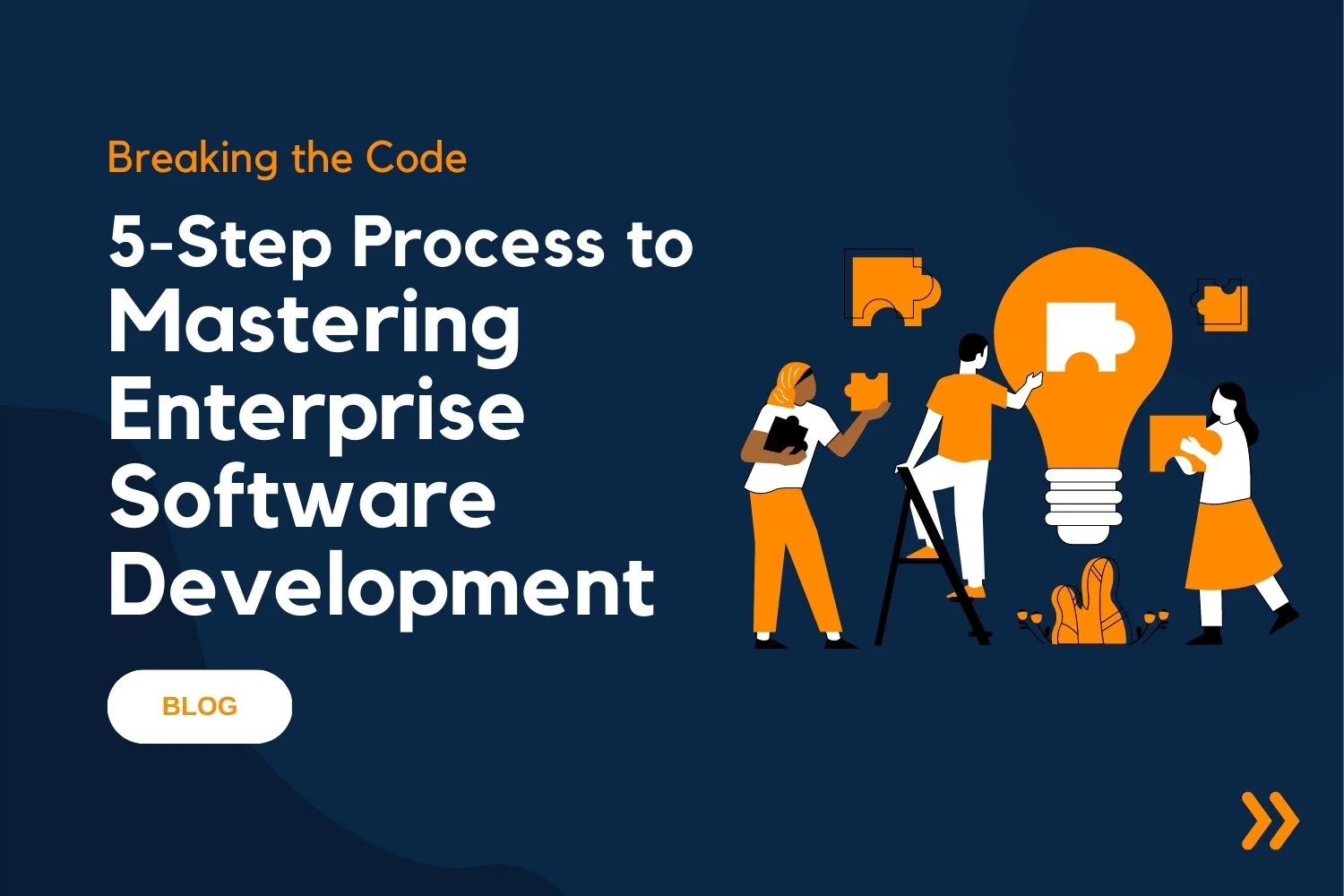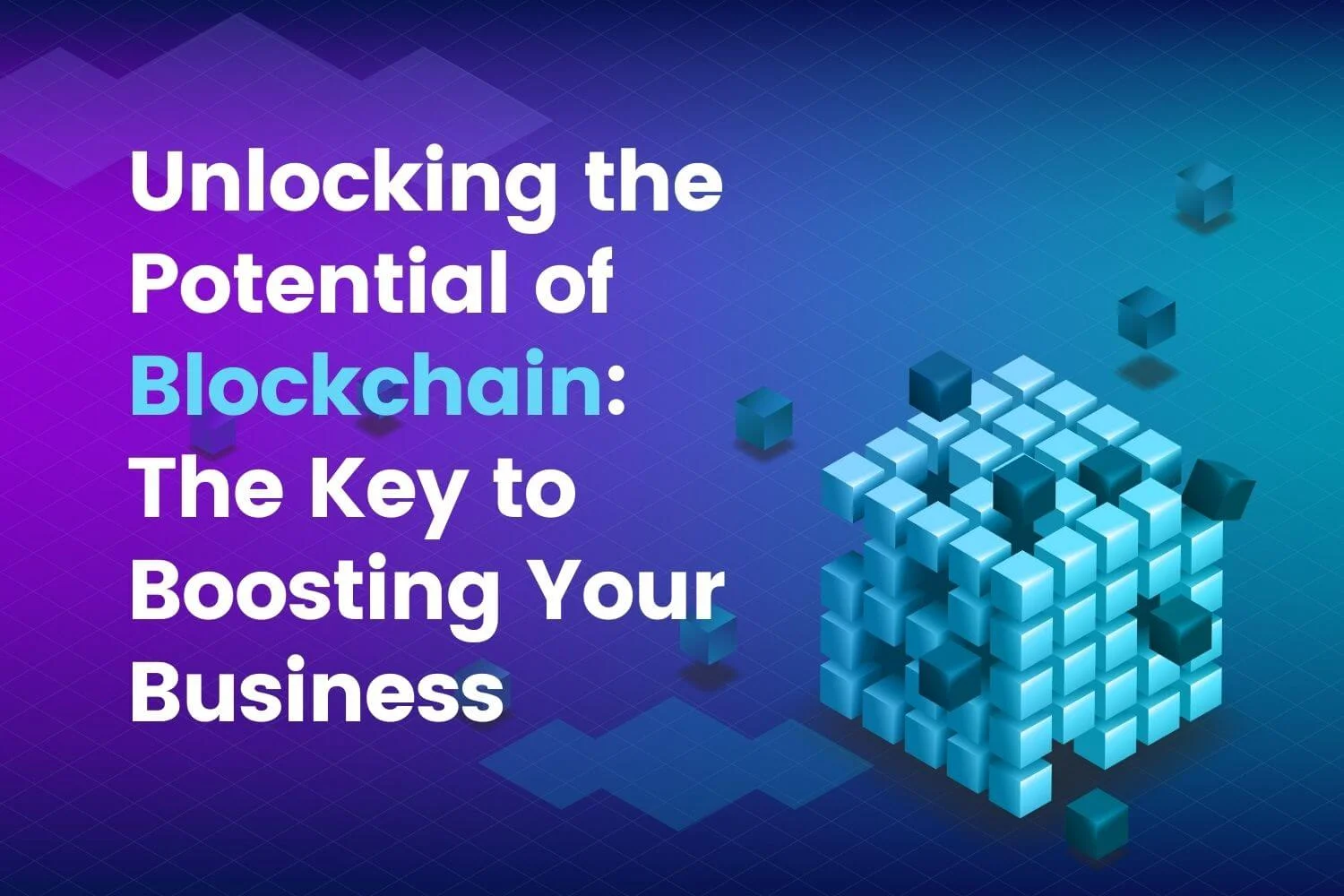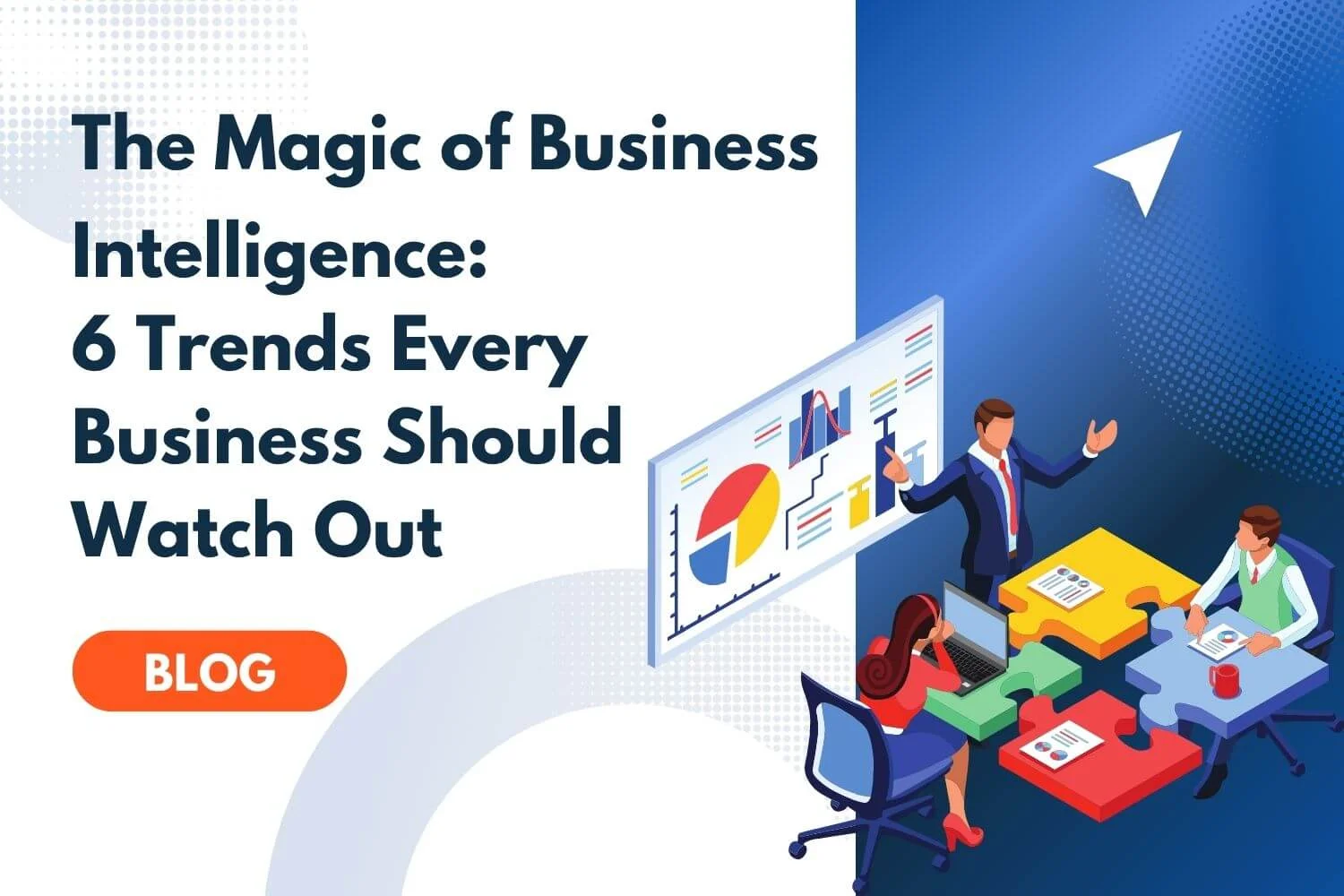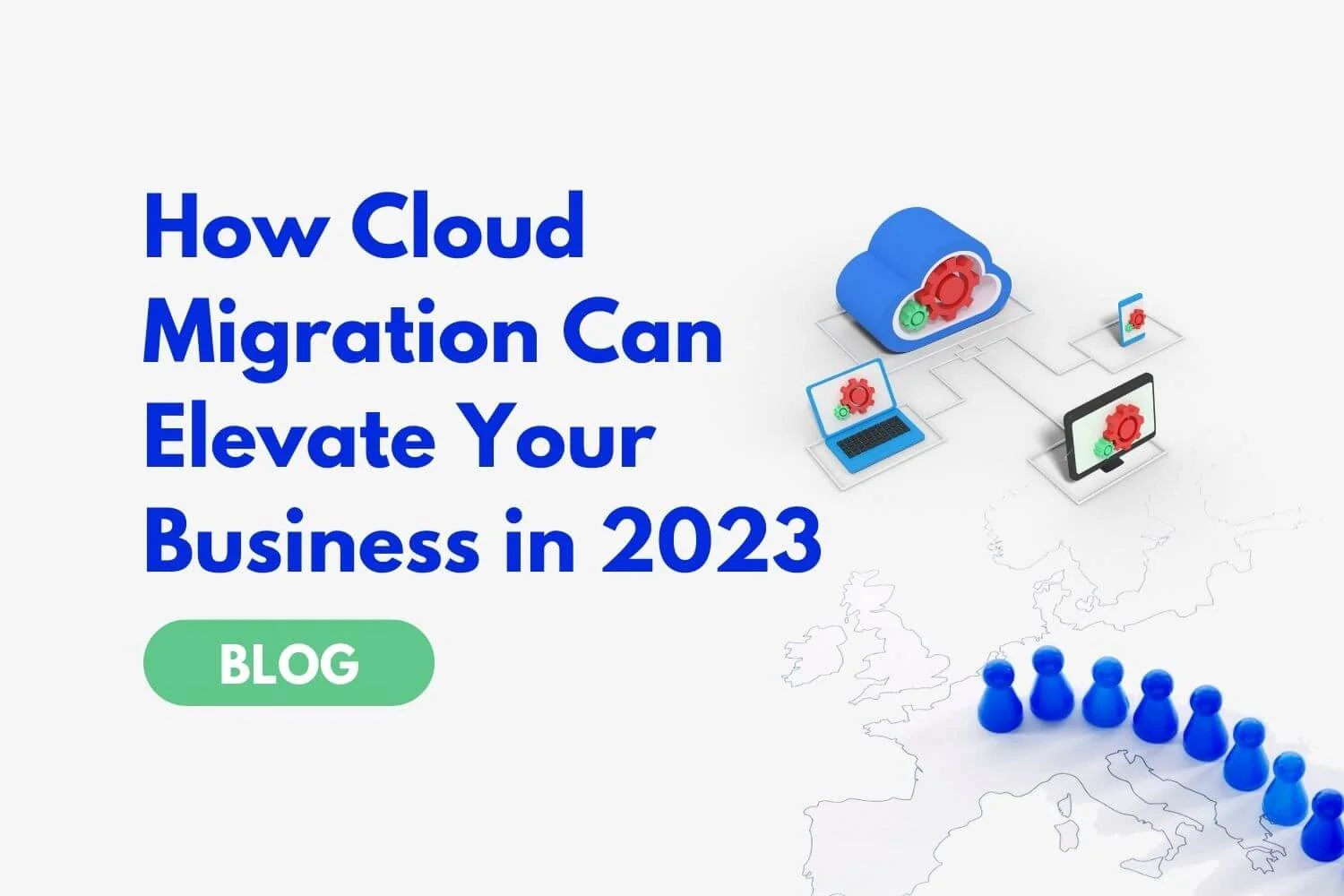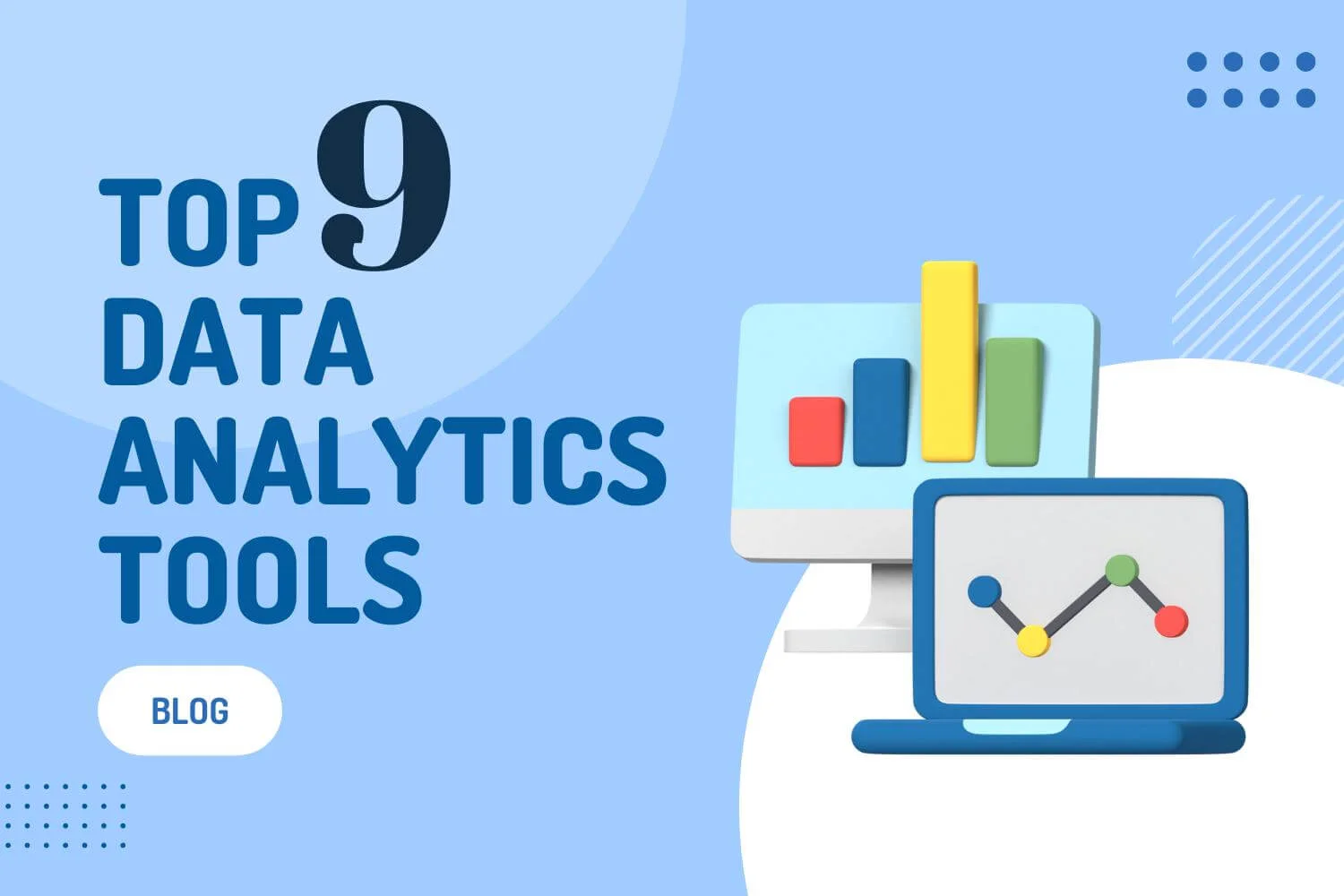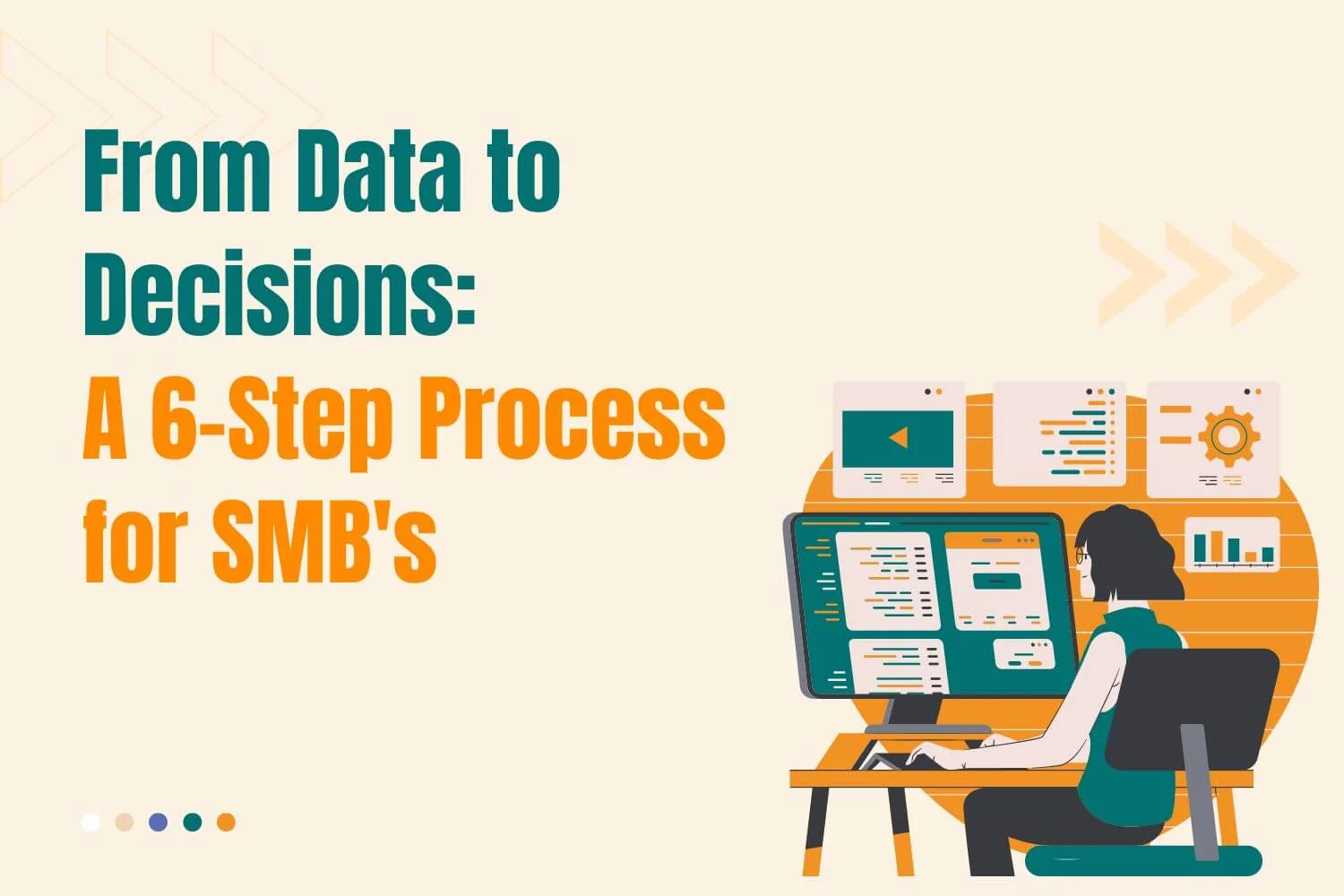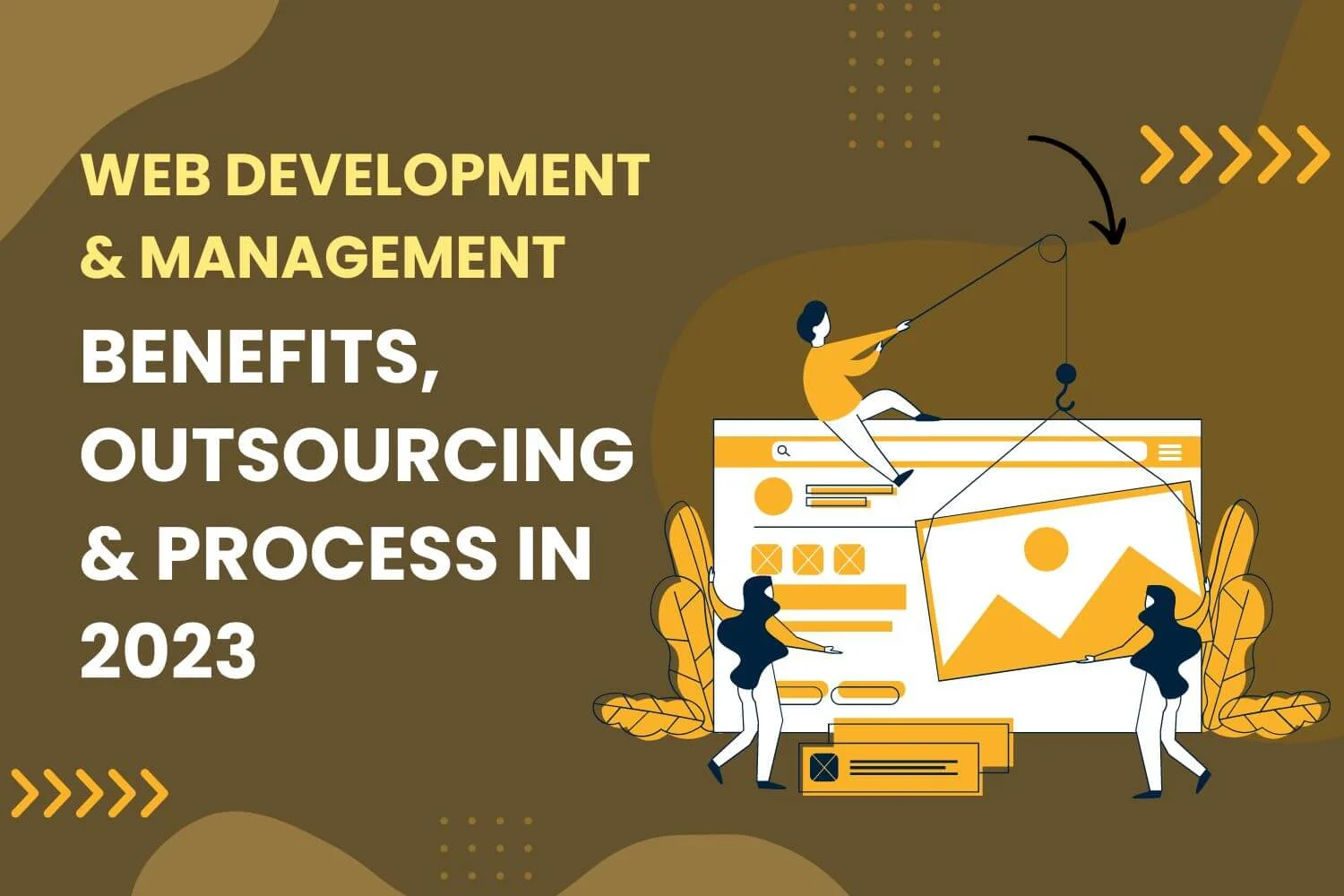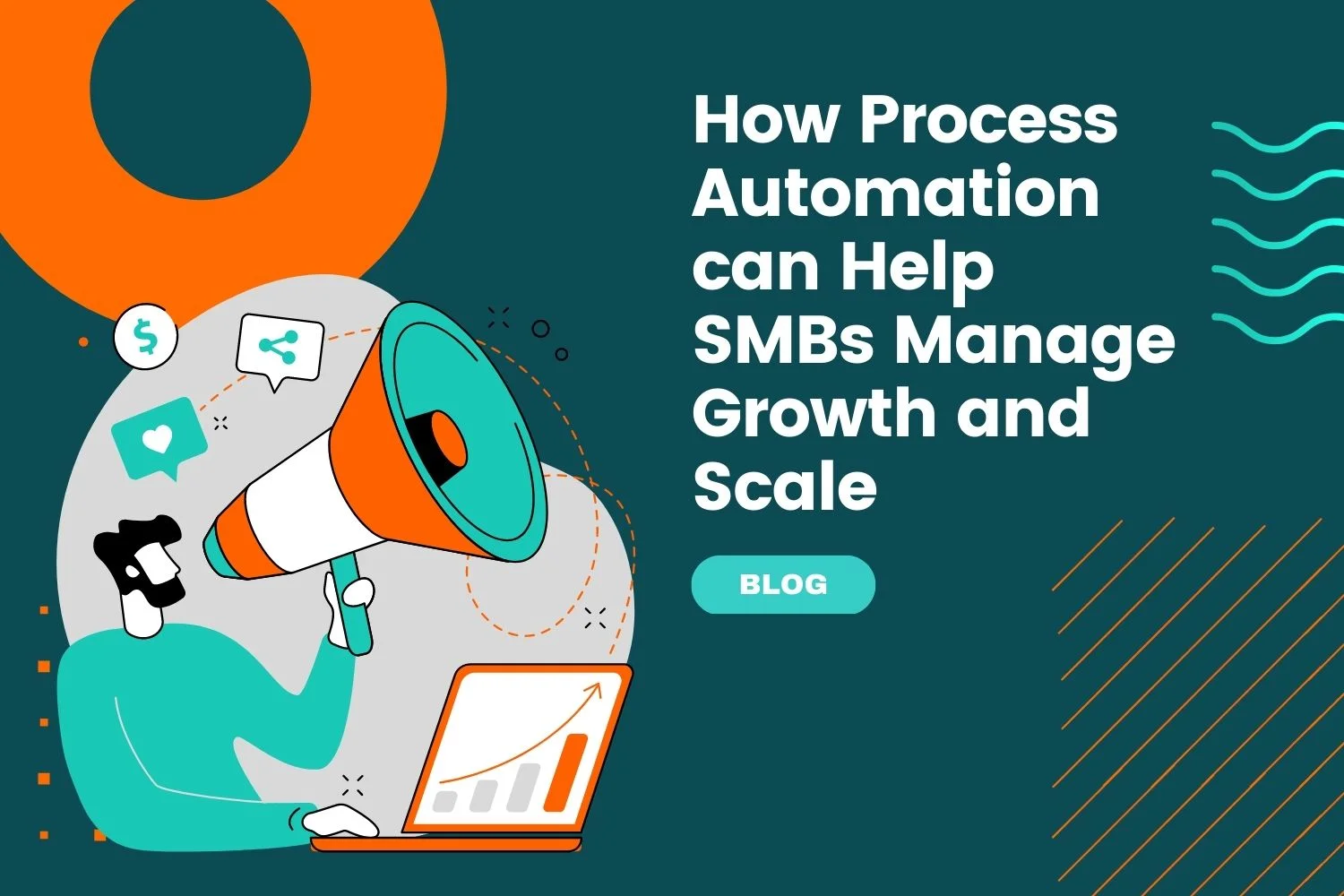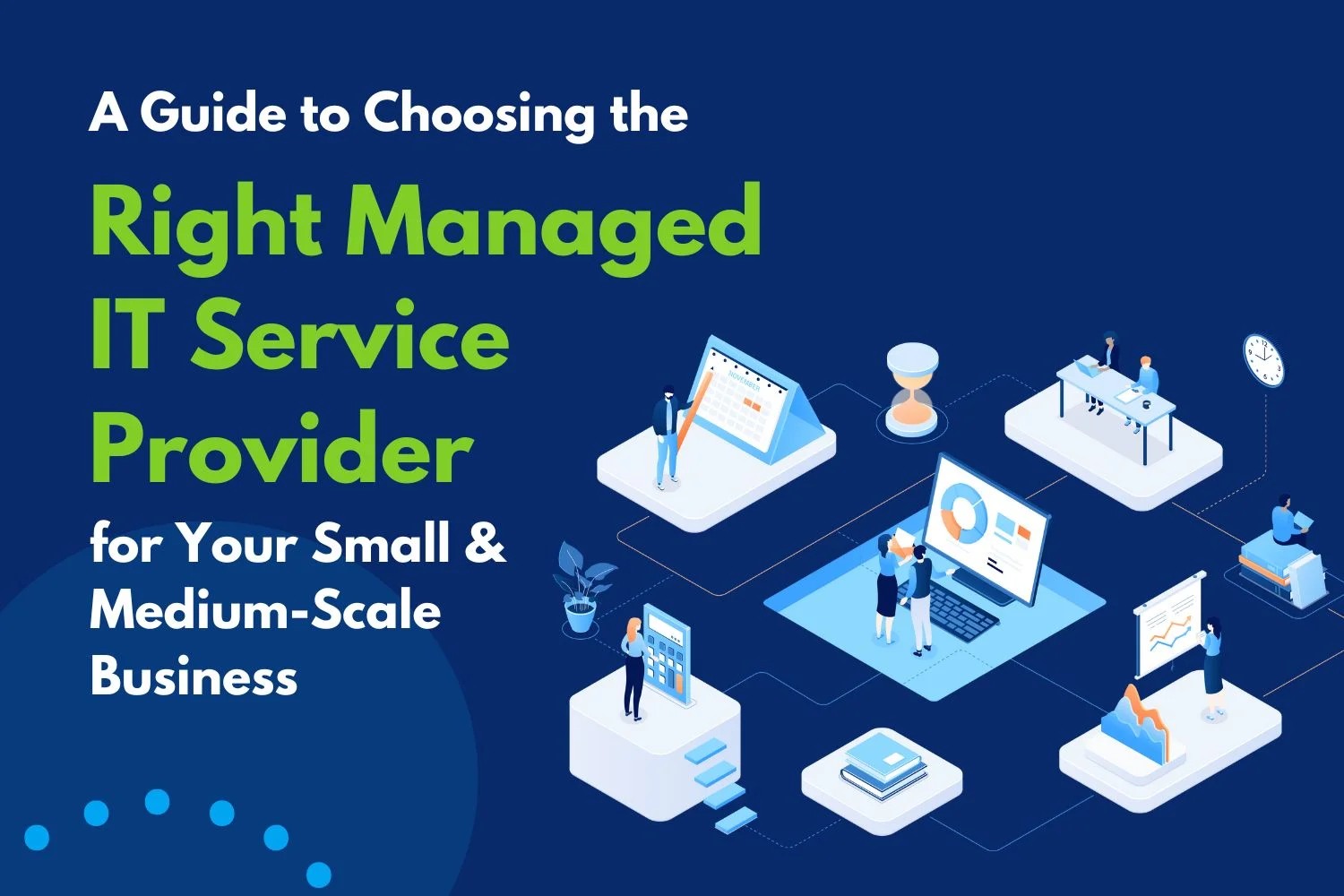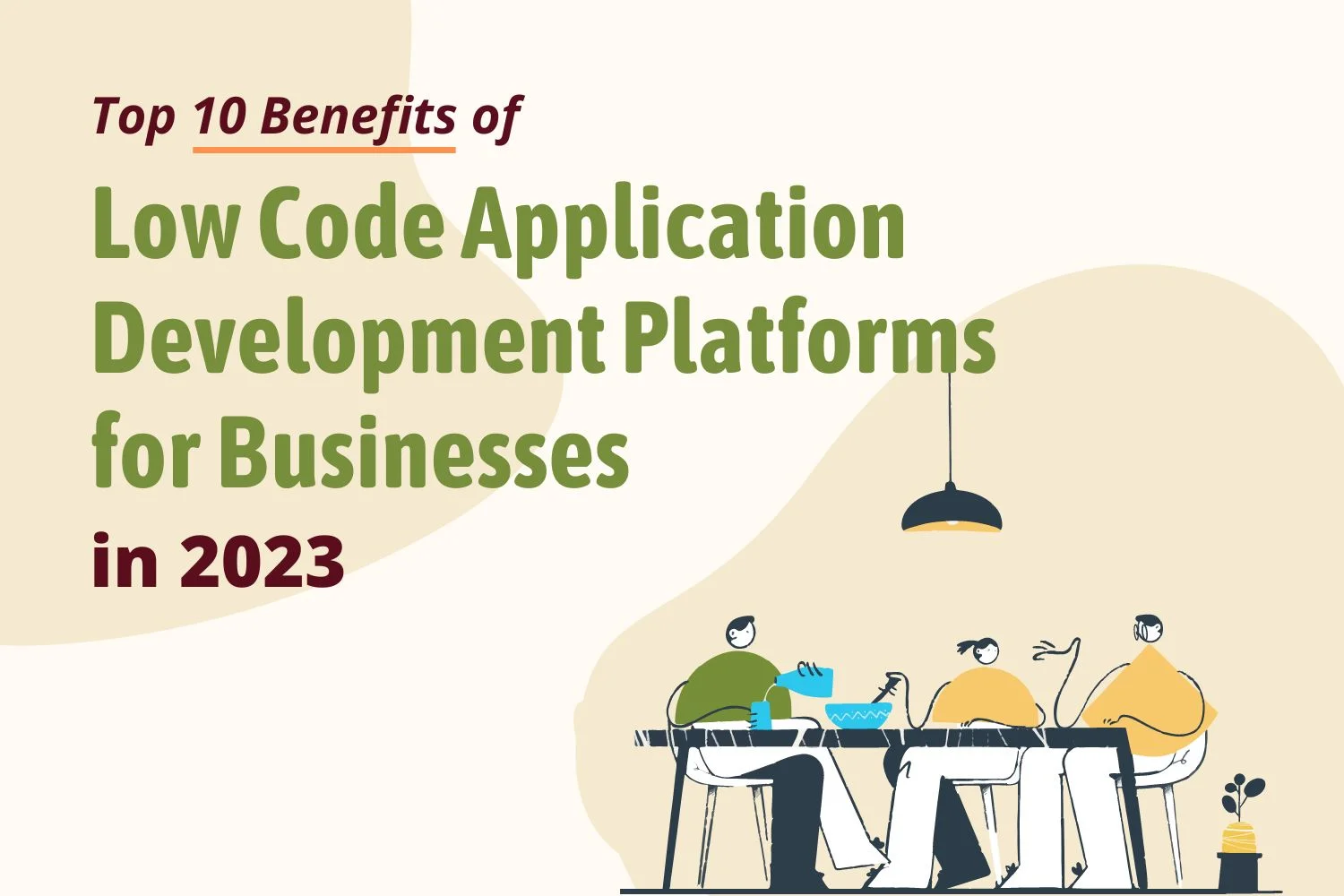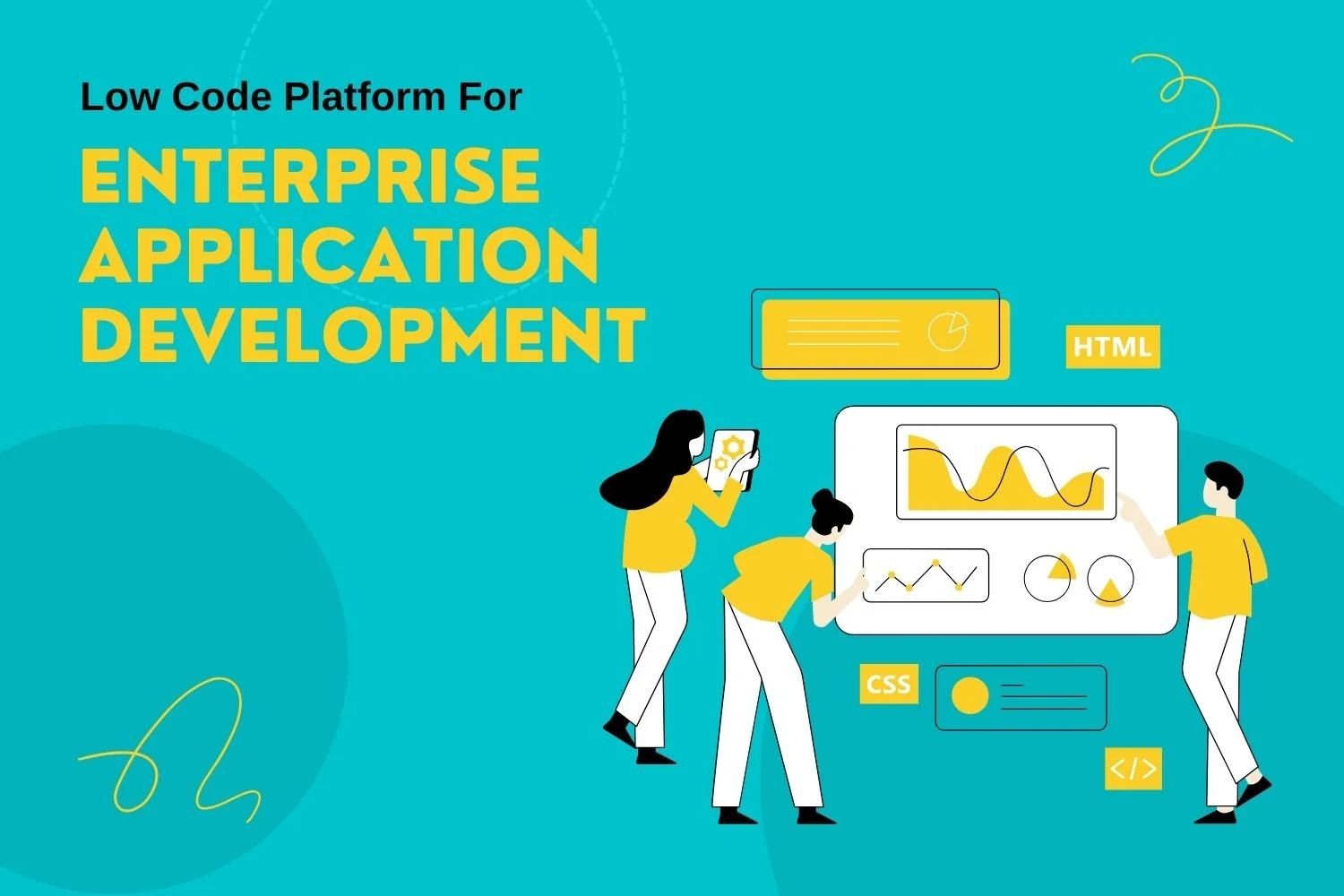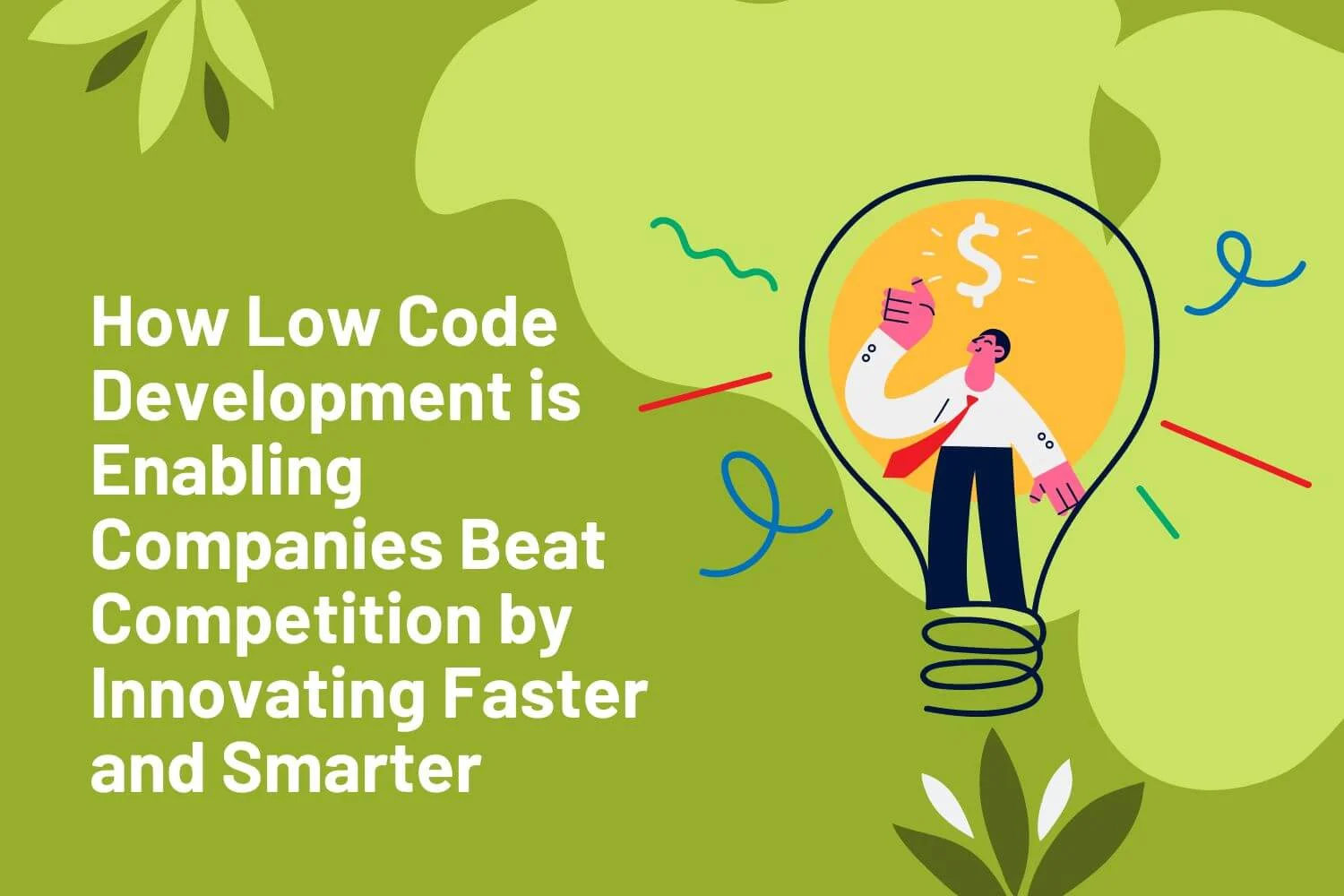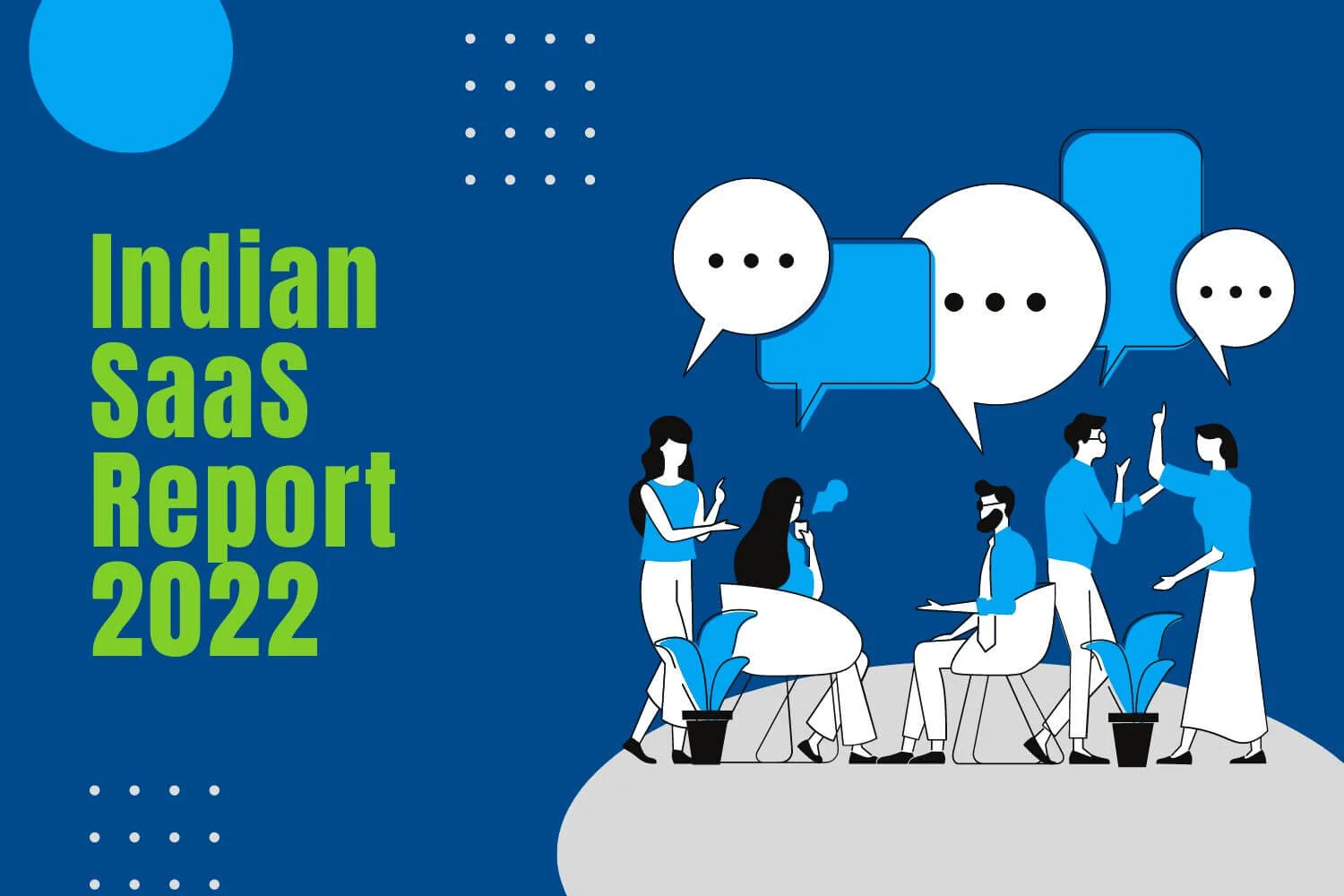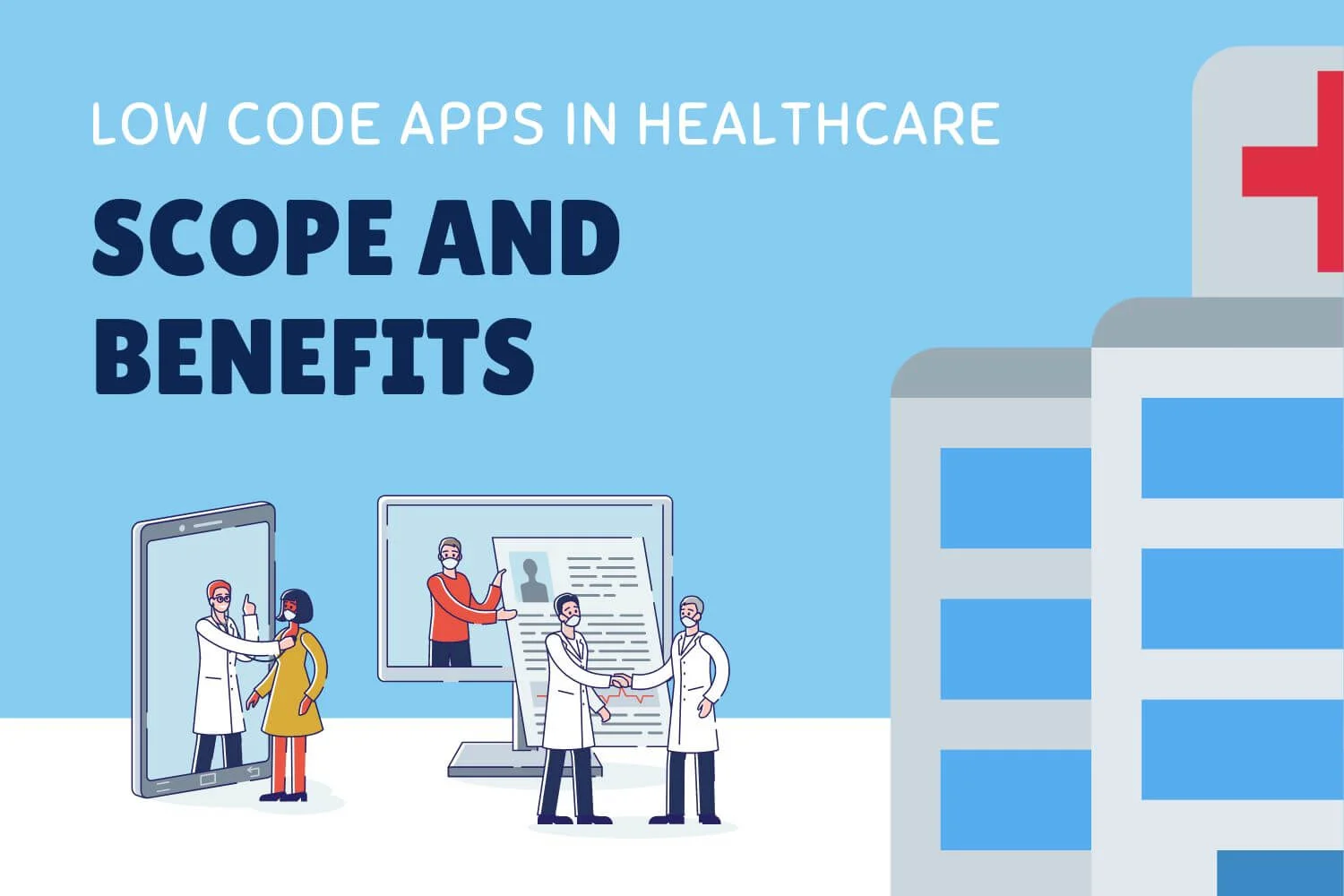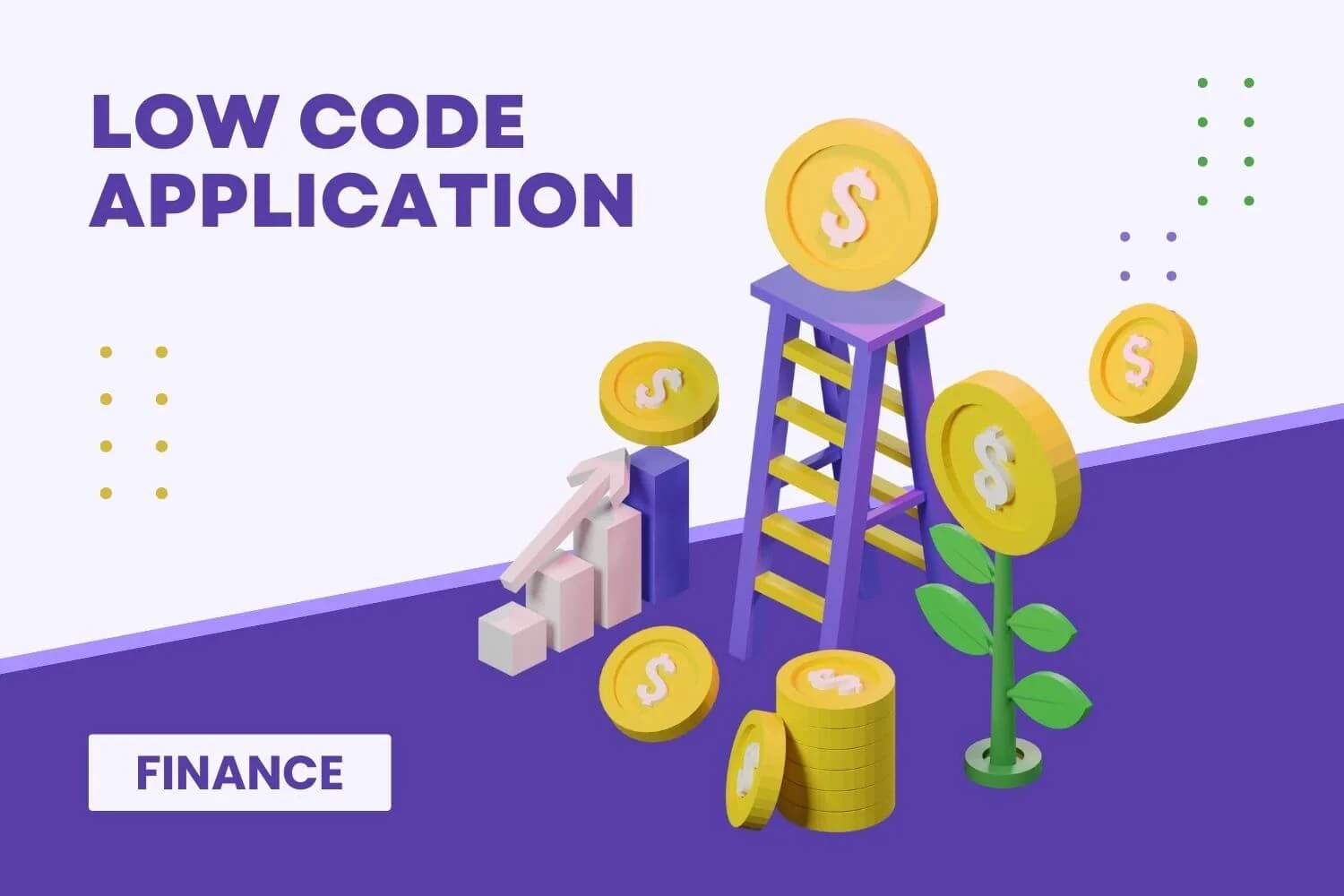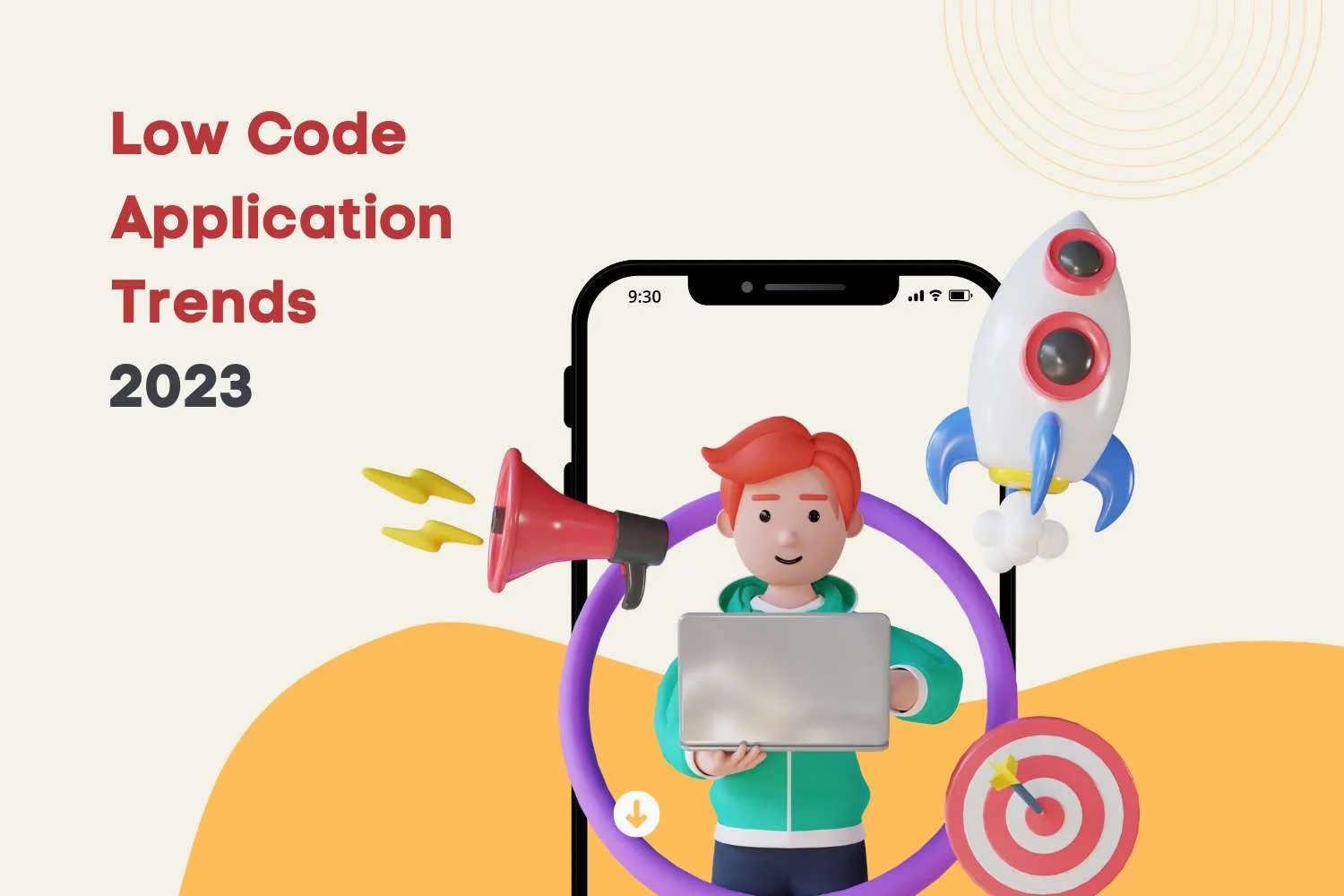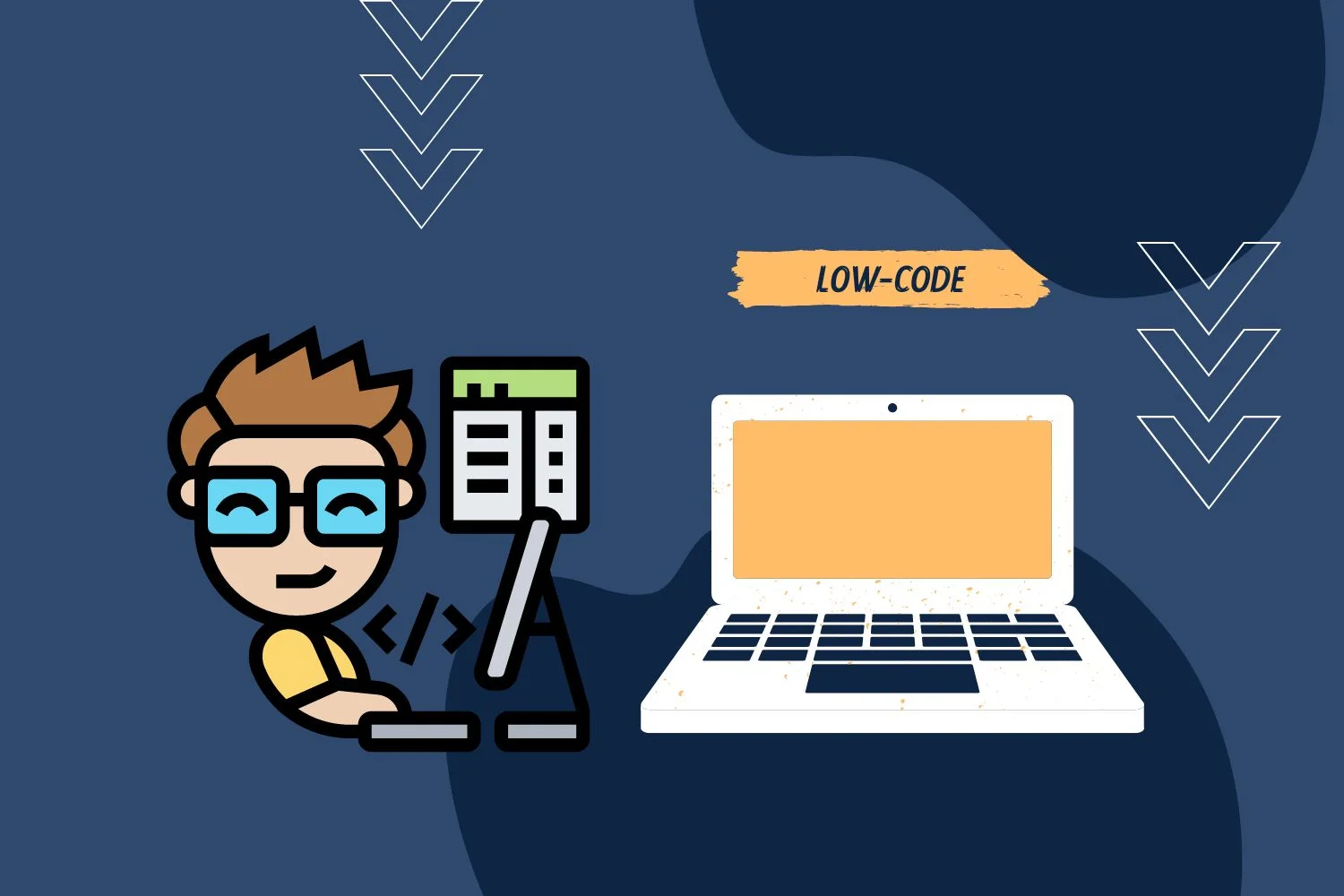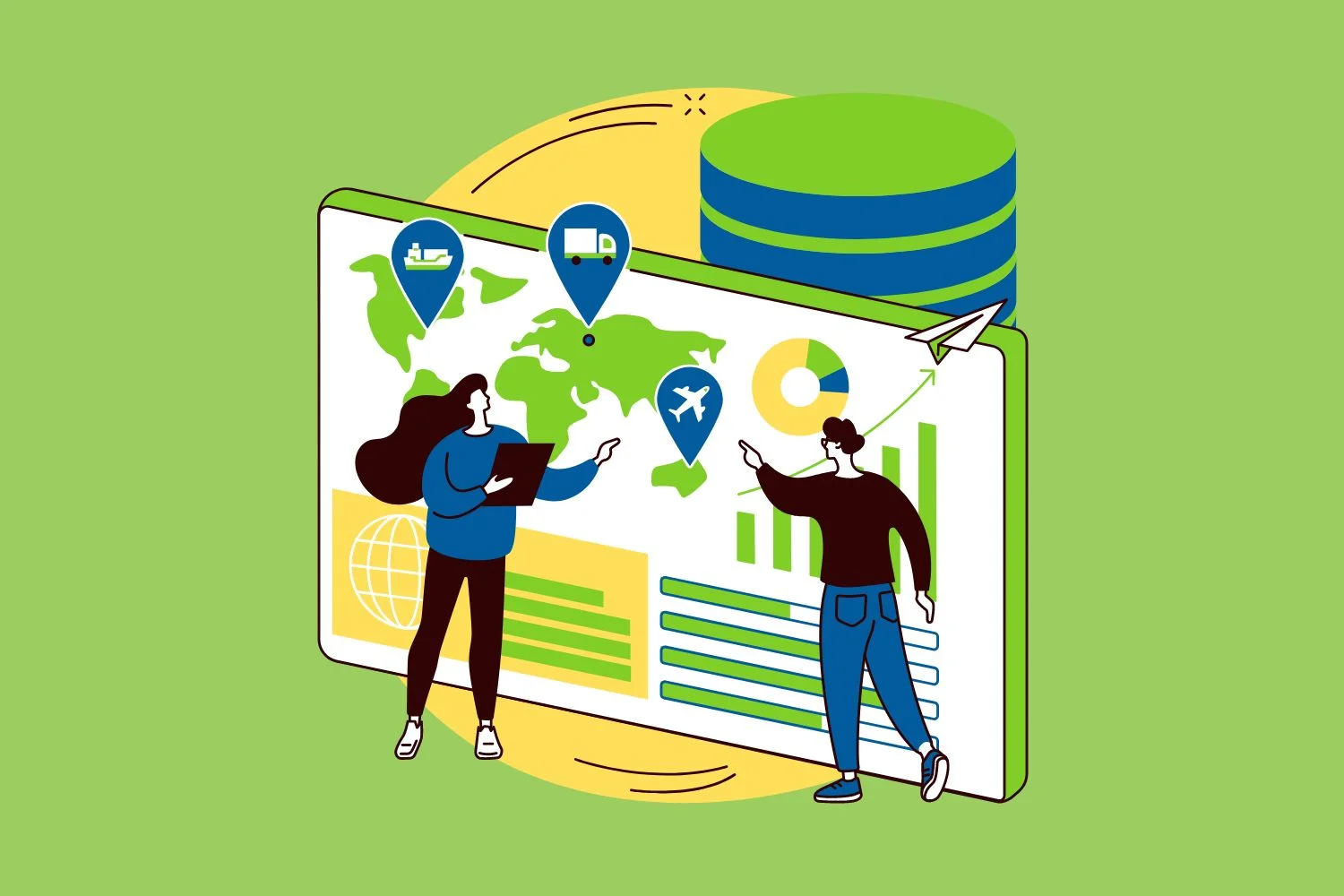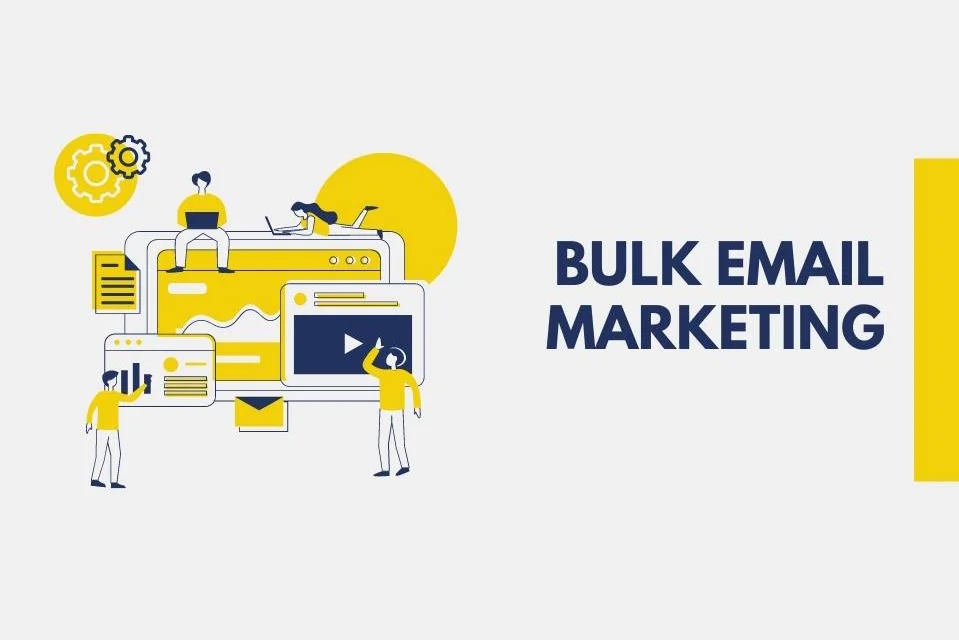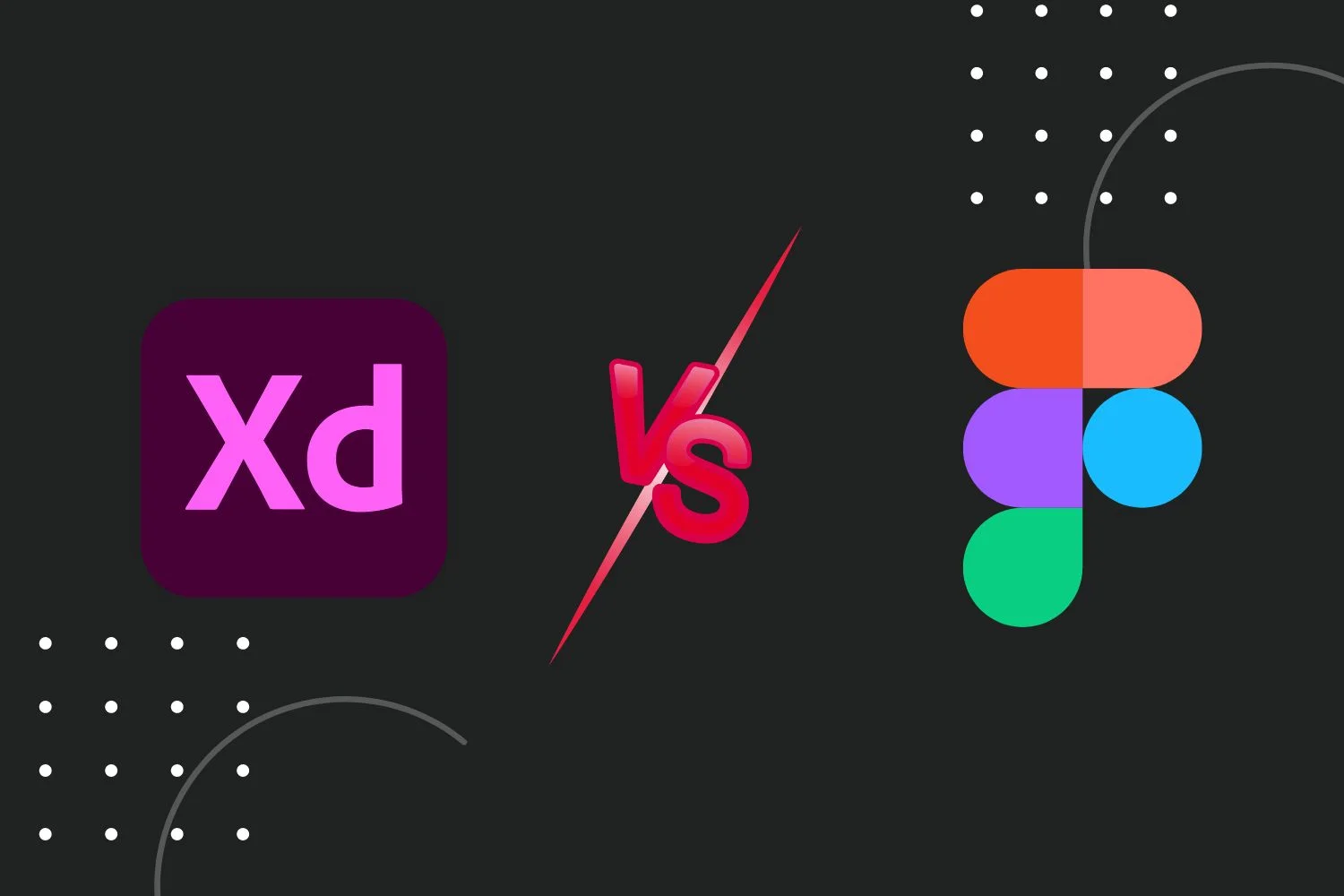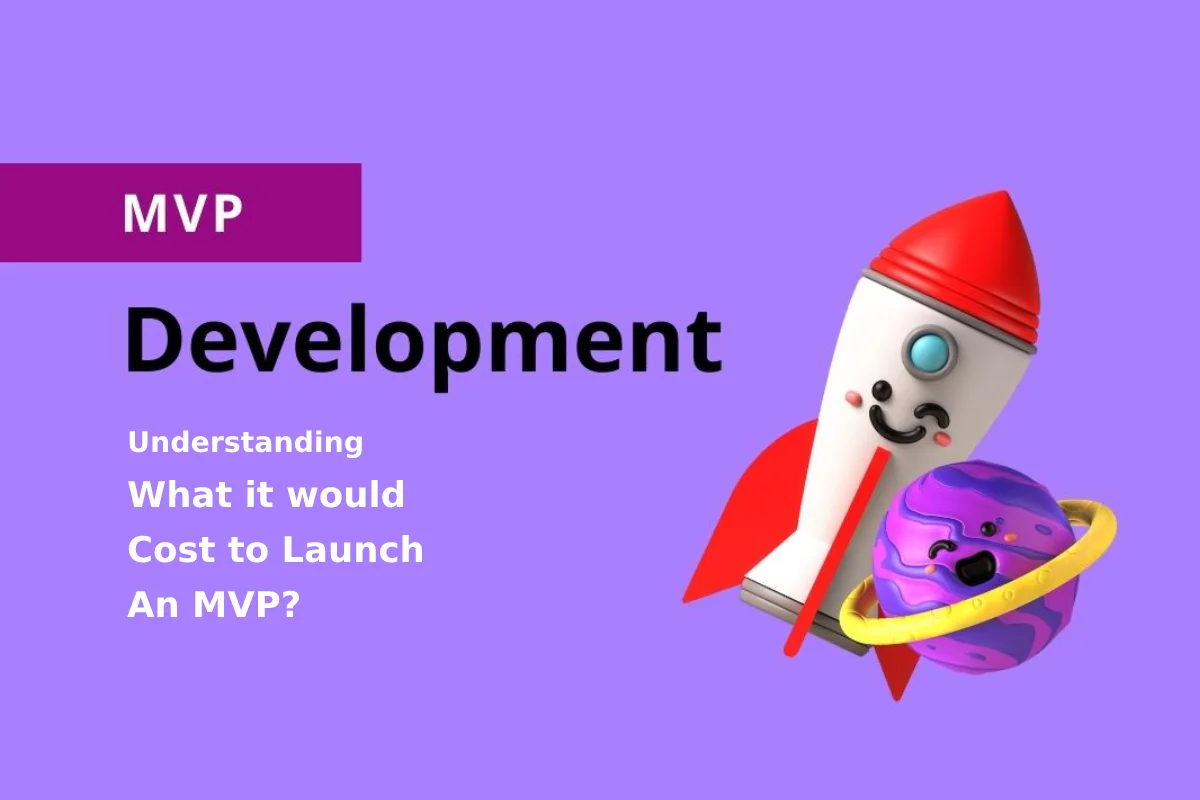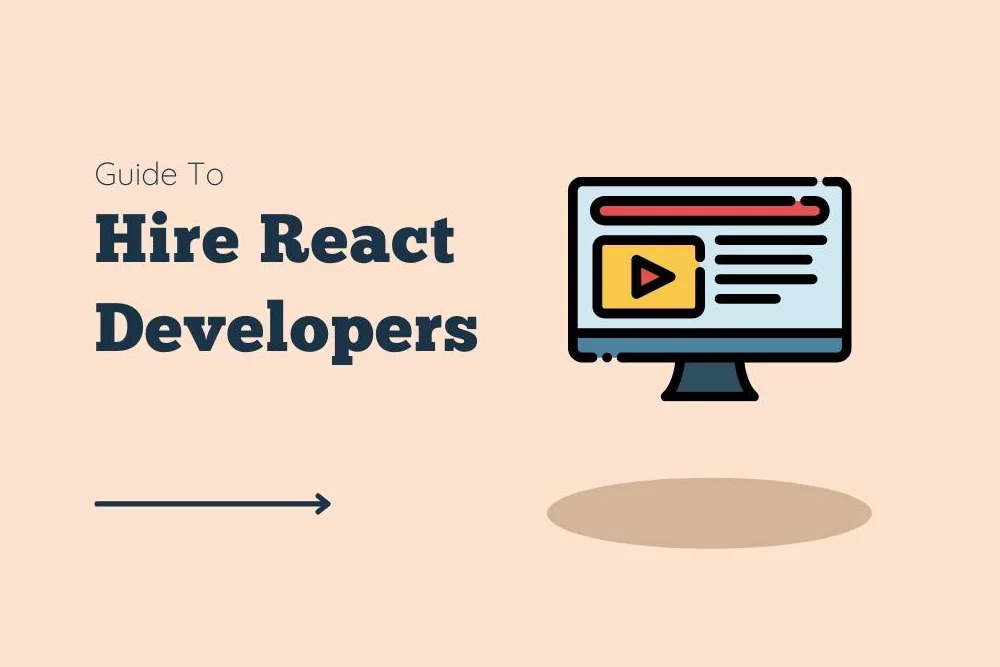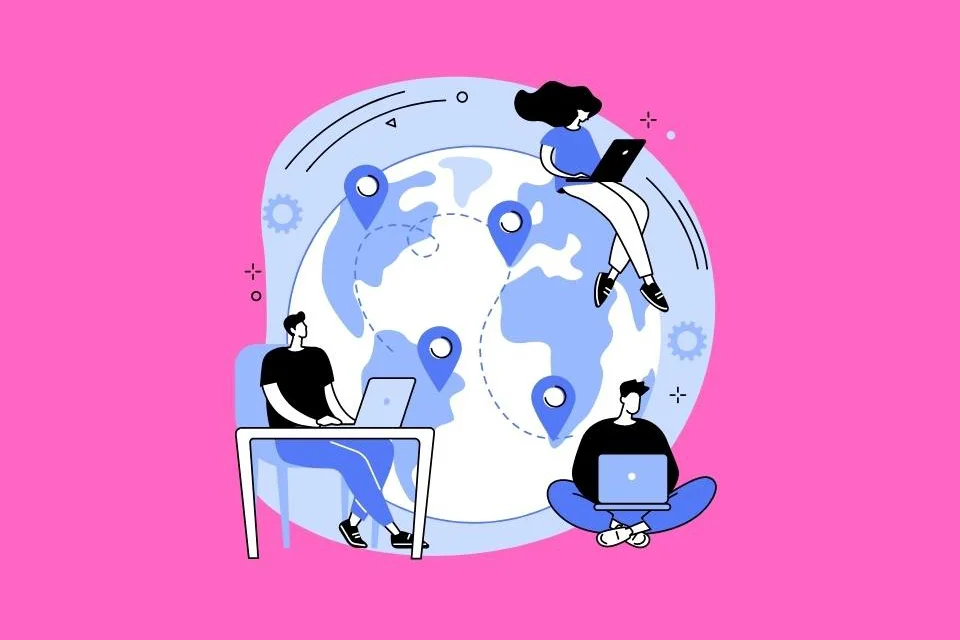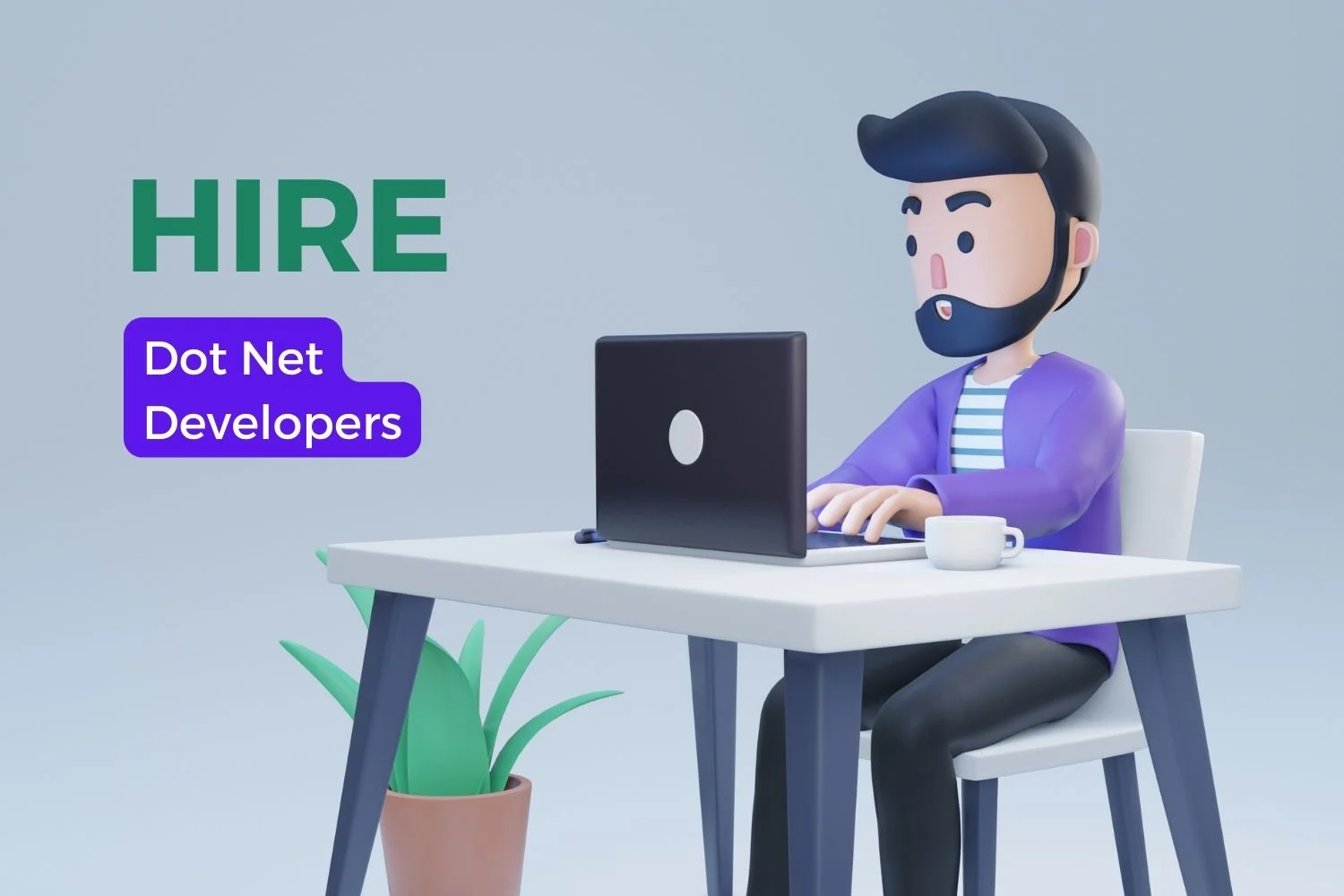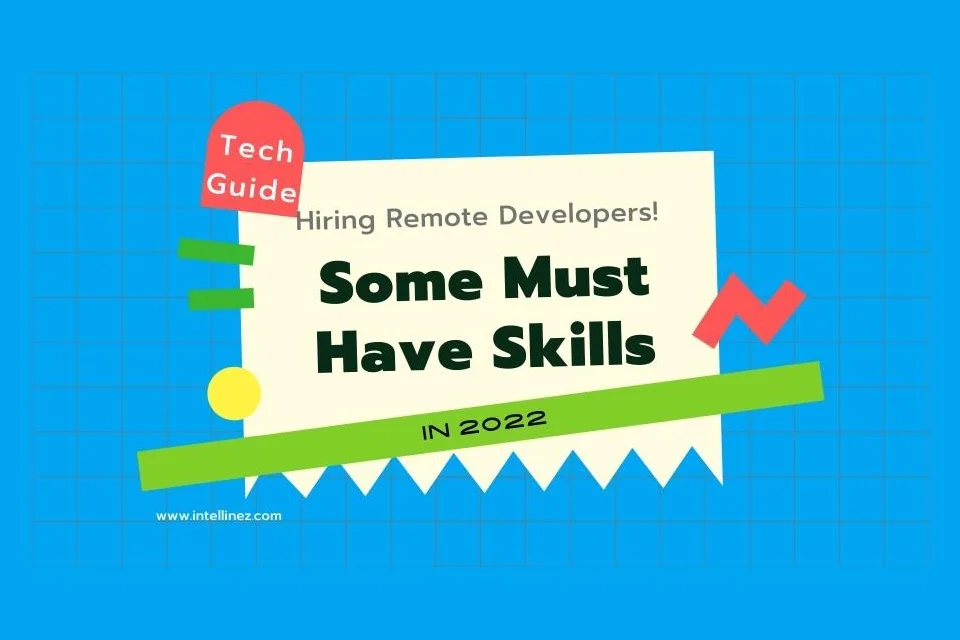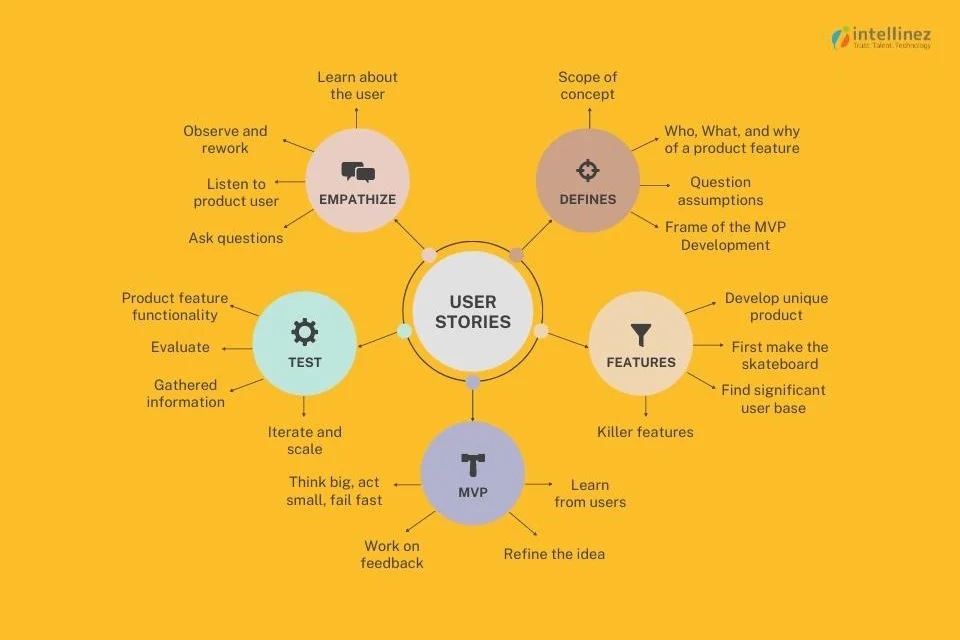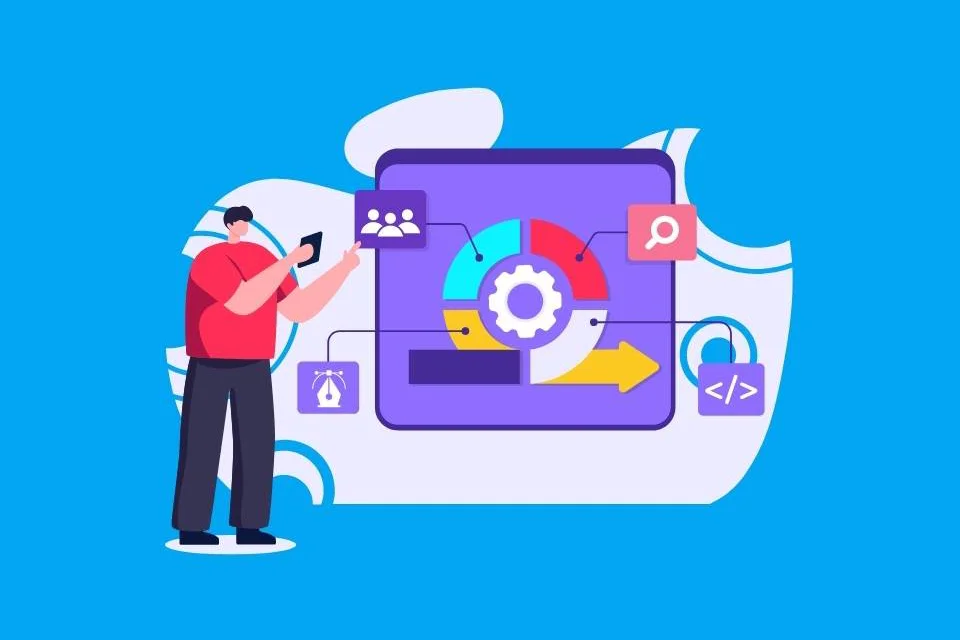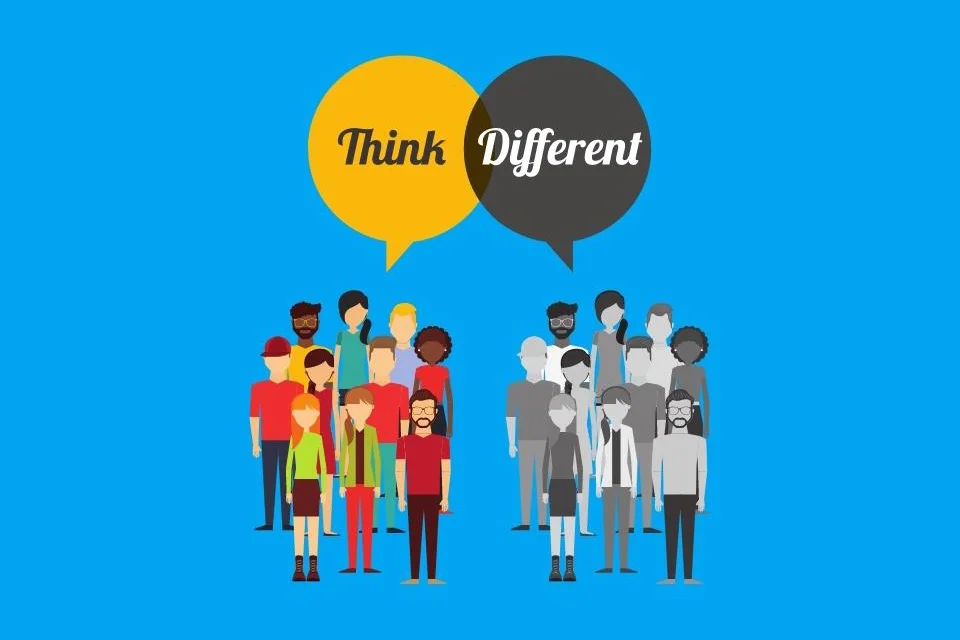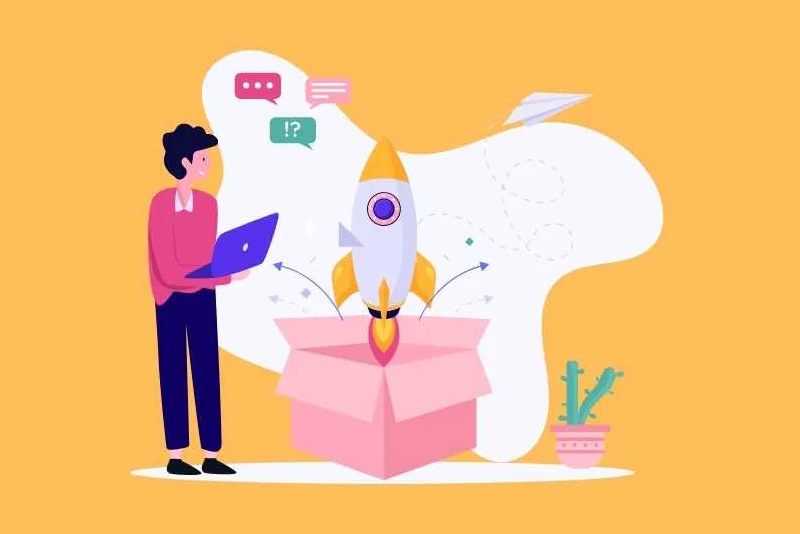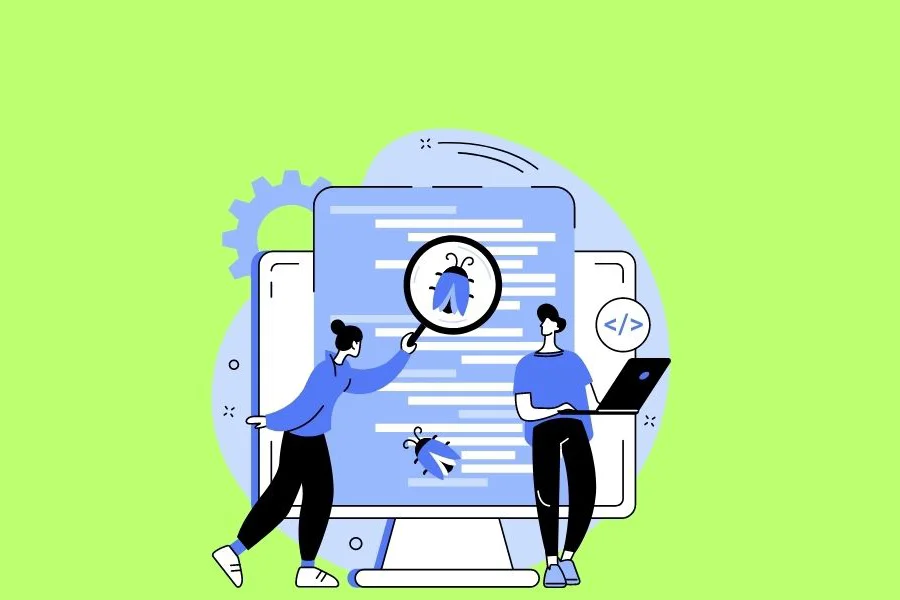Table of Contents
In today’s fast-paced world, where industries are evolving at an unprecedented rate, keeping employees equipped with the right skills has never been more crucial. Technology is at the forefront of this transformation, redefining how organizations approach workplace learning. Just as smartphones revolutionized communication and e-commerce changed the way we shop; AI is now reshaping corporate training.
Artificial intelligence isn’t just a buzzword – it’s a game-changer. Its ability to deliver personalized, engaging, and efficient learning experiences is solving some of the biggest challenges organizations face, such as scalability, employee engagement, and measurable outcomes. By integrating AI in corporate training, companies can ensure their teams are not just keeping up with the demands of the job but excelling and innovating in their roles.
This blog delves into how AI is revolutionizing employee learning and development, exploring its benefits, applications, and future trends. Whether you’re a business leader, HR professional, or employee looking to stay ahead, understanding the potential of artificial intelligence in corporate training is essential for thriving in today’s digital-first workplace.
The Current Landscape of Corporate Training
As per Statista, the global corporate elearning industry is expected to reach $46 billion by 2030 from $22.15 billion in 2023 at a CAGR of 10.9%. Corporate training has long been a cornerstone of employee development, equipping teams with the skills and knowledge needed to thrive in a competitive business environment. Traditionally, companies have relied on methods such as classroom-style workshops, printed manuals, and occasional online modules. While these approaches have proven effective in certain scenarios, they also come with significant limitations.
Overview of Traditional Training Methods
In the traditional model, employees often attend in-person training sessions led by subject-matter experts. These sessions may last hours or even days, requiring employees to step away from their day-to-day tasks. Other tools, like pre-recorded video lessons or standardized e-learning platforms, have offered convenience but often fail to adapt to individual learning paces or needs.
While these methods can deliver foundational knowledge, they frequently rely on a “one-size-fits-all” approach. This can make it difficult to ensure the material resonates with all employees, particularly in organizations with diverse workforces.
Challenges Faced in Employee Learning
1. Scalability
As organizations grow, training large, geographically dispersed teams becomes complex and expensive. Coordinating schedules, ensuring consistent delivery, and tailoring content for different roles adds to the challenge.
2. Personalization
Employees come with varied skill sets, learning preferences, and paces. Standardized training often fails to meet these unique needs, leaving some learners overwhelmed and others disengaged.
3. Engagement
Traditional training can struggle to keep employees actively involved, particularly in digital-first environments. Long sessions and static content may not capture attention or encourage meaningful participation.
4. Tracking Effectiveness
Assessing the impact of training programs is another persistent challenge. Are employees applying what they’ve learned? Which skills need further development? Traditional methods often lack the data and analytics needed to answer these questions.
Introduction to AI as a Solution to These Challenges
Artificial intelligence offers a powerful response to these limitations by reshaping the way corporate training is delivered, consumed, and evaluated. AI-driven tools can create adaptive learning experiences that cater to individual employee needs, ensuring that each person gets the right content at the right time.

With AI, scalability becomes achievable. Platforms can handle training for thousands of employees simultaneously, delivering tailored content that adjusts in real-time based on learner behavior. Engagement levels improve as AI integrates interactive elements like gamification, simulations, and virtual coaching into training programs.
Moreover, AI’s ability to analyze vast amounts of data provides actionable insights for employers, helping them measure training effectiveness, identify skill gaps, and refine strategies. As a result, companies can move beyond “check-the-box” training and foster a culture of continuous learning.
By addressing the core challenges of scalability, personalization, and engagement, artificial intelligence is not just an enhancement to traditional methods – it is a transformative force that equips organizations to meet the demands of the modern workforce.
What is AI in Corporate Training?
Artificial intelligence is rapidly transforming the corporate training landscape, offering innovative solutions to improve learning outcomes, streamline processes, and enhance the employee experience. But what does AI in corporate training really mean, and how does it work?
Definition of AI in the Context of Workplace Learning
In the realm of workplace learning, artificial intelligence refers to the use of advanced algorithms and machine learning techniques to design, deliver, and analyze training programs. Unlike traditional approaches, AI-powered systems adapt dynamically to individual learner needs, providing tailored content, feedback, and assessments. This personalization ensures employees receive the most relevant training at the right time, increasing its effectiveness and impact. At its core, AI in corporate training is about leveraging technology to make learning smarter, more efficient, and deeply engaging.
Some Examples of AI-Powered Tools
Let’s explore some of the key tools and techniques that showcase AI’s transformative role in corporate learning:

1. Chatbots
AI-driven chatbots act as virtual assistants, available 24/7 to answer employee queries, guide them through training modules, or provide resources. For example, a new hire could ask a chatbot for tips on navigating company policies or finding specific training materials, ensuring instant support without human intervention.
2. Adaptive Learning Platforms
Adaptive learning platforms use artificial intelligence to analyze an employee’s progress, knowledge gaps, and preferences, then customize the training experience accordingly. These systems adjust the difficulty level, suggest new learning paths, and provide personalized recommendations to keep employees engaged and challenged at their own pace.
3. Virtual Reality Simulations
By combining AI with VR, organizations can create immersive, interactive learning experiences. For example, employees can practice real-world scenarios like conflict resolution, safety drills, or technical skills in a risk-free virtual environment, with artificial intelligence providing feedback on their performance.
4. Learning Management Systems (LMS)
AI-enhanced learning management platforms act as centralized hubs for training delivery, offering personalized course recommendations, tracking learner progress, and automating administrative tasks. These systems use AI to ensure that employees access the most relevant materials at the optimal time, streamlining the training experience.
AI’s Role in Analyzing and Enhancing Training Effectiveness
Artificial intelligence not only delivers content but also provides powerful tools for measuring and optimizing training programs. It collects and analyzes data on employee interactions, completion rates, and test results, offering actionable insights into what’s working and what isn’t.

- Performance Tracking – AI identifies trends in individual and team performance, helping HR teams and managers pinpoint areas where additional training may be needed.
- Predictive Analytics – Artificial intelligence can forecast future skill requirements based on industry trends and workforce data, enabling proactive upskilling and reskilling efforts.
- Feedback Loops – AI systems provide real-time feedback to both learners and trainers, ensuring continuous improvement in the learning process.
By integrating AI-powered tools and analytics, corporate training evolves from a static, generalized process into a dynamic, data-driven strategy. This not only enhances learning outcomes but also aligns training with organizational goals, ensuring a measurable return on investment.
Benefits of AI in Corporate Training
The integration of artificial intelligence into corporate training offers transformative benefits, addressing many challenges faced by traditional learning methods. From personalization to cost efficiency, AI enhances both the employee experience and organizational outcomes.

A. Personalization at Scale
One of AI’s greatest strengths is its ability to provide customized learning experiences to a large and diverse workforce.
- Tailored Learning Programs – Artificial intelligence analyzes an employee’s performance, learning style, and preferences to deliver training content that aligns with their specific needs. For instance, explanatory modules, while a faster learner is presented with advanced challenges.
- Real-Time Feedback – AI-powered systems continuously monitor progress, offering instant feedback to help employees improve and stay motivated. This ensures that learners are always aware of their strengths and areas for growth, keeping them on track toward achieving their goals.
By offering personalization at scale, artificial intelligence ensures that every employee receives a meaningful and effective training experience.
B. Enhanced Engagement and Retention
AI-powered training programs make learning more engaging and enjoyable, addressing one of the major pain points of traditional learning methods: low engagement.
Gamification and Interactive Modules – Artificial intelligence incorporates gamification elements like points, badges, and leaderboards to foster a sense of achievement and competition. Interactive modules, powered by AI, adapt based on the learner’s input, making training sessions more dynamic and immersive.
By keeping employees engaged, artificial intelligence helps improve knowledge retention and ensures that training outcomes are effectively applied in the workplace.
C. Cost and Time Efficiency
Artificial intelligence enables companies to deliver high-quality training while reducing costs and administrative burdens.
- Streamlining Content Delivery – AI automates many aspects of training, such as curating content, scheduling sessions, and grading assessments. This reduces the time trainers and administrators spend on repetitive tasks.
- Reducing Employee Downtime – Traditional training sessions often require employees to take significant time away from their duties. Artificial intelligence allows for flexible, self-paced learning that employees can integrate into their schedules, minimizing disruptions to productivity.
By optimizing both costs and time, artificial intelligence ensures that corporate training is not only effective but also economically sustainable.
D. Data-Driven Insights
AI empowers organizations to make informed decisions about their training programs by leveraging data analytics.
- Tracking Performance and Predicting Skill Gaps – Artificial intelligence monitors learner performance in real-time, highlighting areas where employees excel or need improvement. Predictive analytics can identify potential skill gaps before they impact business outcomes, enabling proactive training interventions.
- Informed Decision-Making – AI provides HR and management teams with detailed insights into training effectiveness, employee progress, and ROI. For instance, by analyzing completion rates and assessment scores, managers can adjust training content to better align with organizational goals.
With artificial intelligence, corporate training becomes a strategic tool for workforce development, helping companies stay agile and competitive in a rapidly evolving business environment.
AI’s benefits in corporate training extend far beyond improving learning outcomes – it’s a game changer for employee engagement, cost-efficiency, and strategic planning, making it an essential tool for modern organizations.
Popular Applications of AI in Corporate Training
Artificial intelligence is revolutionizing corporate training by introducing innovative tools and technologies that cater to diverse learning needs. These applications not only enhance the learning experience but also align training programs with organizational goals. Below are some of the most impactful applications of AI in corporate training:

1. Learning Management System (LMS)
AI-enhanced learning management systems are at the core of modern corporate training strategies.
- Course Recommendations – By analyzing user data such as past performance, learning preferences, and skill requirements, AI suggests tailored courses for each employee.
- Analytics and Reporting – AI-driven LMS platforms generate detailed analytics, providing insights into learner engagement, course effectiveness, and areas needing improvement.
For instance, an AI-powered LMS can recommend leadership modules to high-performing employees on a managerial track, ensuring training aligns with career growth.
2. Virtual Coaching
Artificial intelligence serves as a personal tutor, providing employees with real-time support and guidance.
- Role-Play and Feedback – Employees can engage in AI-driven virtual coaching sessions, practicing tasks like customer interactions or negotiation skills, with the AI offering constructive feedback.
- Availability – Virtual coaches are accessible 24/7, enabling employees to learn and improve at their convenience.
This application is particularly useful for sales teams or customer service representatives seeking to refine their interpersonal skills.
3. Upskilling and Reskilling Programs
AI plays a pivotal role in helping organizations address skill gaps and prepare employees for future roles.
- Skill Assessments – Artificial intelligence evaluates employee competencies through dynamic assessments, identifying areas that need development.
- Customized Training Paths – Based on the assessment results, AI creates personalized learning paths that focus on upskilling or reskilling employees to meet evolving business needs.
For instance, artificial intelligence can guide IT professionals through courses in cloud computing or cybersecurity, ensuring they remain relevant in the industry.
4. Language Training Tools
AI-powered language tools are helping employees enhance their communication skills, critical for working in global teams.
- Speech Recognition and Feedback – Tools like AI language trainers analyze pronunciation and grammar, providing instant corrections and suggestions.
- Interactive Practice – Simulated conversations with artificial intelligence ensure employees gain confidence in using new languages effectively.
This application is particularly beneficial for multinational companies that require seamless communication across borders.
5. Immersive Learning with Virtual Reality (VR)
Artificial intelligence paired with virtual reality facilitates immersive, hands-on training experiences.
- Simulated Scenarios – Employees can practice real-world tasks in a virtual environment, such as performing safety drills or operating machinery.
- AI-Driven Adjustments – AI monitors performance during VR sessions, adjusting the difficulty or providing real-time feedback to enhance learning outcomes.
Such applications are especially valuable in industries like aviation, healthcare, and manufacturing.
6. Onboarding and Orientation
Artificial intelligence simplifies the onboarding process for new hires, ensuring they quickly adapt to the roles.
- Interactive AI Guide – Chatbots and virtual assistants provide new employees with step-by-step guidance on company policies, tools, and workflows.
- Tailored Onboarding Paths – Artificial intelligence curates personalized training modules based on the employee’s role and background, ensuring a smooth transition into the organization.
This reduces the time and resources required for manual onboarding while improving new hire retention.
7. Compliance and Policy Training
AI ensures that employees remain up to date with essential compliance and regulatory requirements.
- Automated Content Updates – AI-powered systems update training materials automatically to reflect changes in laws or industry standards.
- Interactive Assessments – AI-driven quizzes and simulations test employees’ understanding of compliance topics, reinforce learning.
For industries like healthcare and finance, this application ensures strict adherence to regulatory frameworks.
8. Employee Wellbeing Training
Artificial intelligence is also being used to promote workplace mental health and resilience.
- Stress Management Programs – AI-driven platforms guide employees through mindfulness exercises or resilience-building activities.
- Wellness Tracking – Artificial intelligence systems can recommend resources or training to address specific stressors identified through employee feedback or engagement data.
This application supports a healthier, more productive workforce.
With these applications, artificial intelligence is reshaping corporate training to be more effective, adaptive, and aligned with both employee needs and organizational objectives. From enhancing onboarding to enabling immersive learning experiences, AI ensures that training remains impactful in a fast-changing business landscape.
Addressing Concerns and Challenges
While artificial intelligence in corporate training offers remarkable benefits, it’s not without challenges. Organizations must address concerns around privacy, fairness, and maintaining a human connection to create effective, ethical, and trusted learning environments. Let’s explore these challenges using a few relatable analogies.

1. Privacy and Data Security: The Vault
Imagine AI-powered training tools as a massive vault storing valuable assets – employee data, performance metrics, and learning preferences. Just as physical vault needs advanced locks and surveillance to keep its contents safe, AI systems require robust security measures to protect sensitive information.
- The Challenge – AI systems collect large amounts of personal data to deliver personalized training. Without proper safeguards, this data could be vulnerable to breaches or misuse.
- The Solution – Organizations must implement encryption, secure access protocols, and compliance with data protection regulations like GDPR. Regular audits act as a “vault inspection,” ensuring that the security mechanisms remain up to date.
By treating data privacy like safeguarding a treasure, companies can build trust with employees and protect their information.
2. Fairness and Algorithmic Bias: The Recipe
Think of an AI algorithm as the recipe for your favorite dish. If the recipe is flawed – using too much salt or missing a key ingredient – the result won’t taste right. Similarly, if an AI algorithm is trained on biased data or designed without diverse inputs, it can produce unfair outcomes.
- The Challenge – AI systems may unintentionally favor certain groups, roles, or learning styles, reinforcing biases rather than eliminating them. For example, an AI recommending leadership training might overlook women or minority employees due to historical biases in the data.
- The Solution – Like perfecting a recipe, training algorithms on diverse datasets and regularly testing for bias ensures the “dish” (AI’s recommendations) is fair and inclusive. Organizations should also involve diverse teams in the design process to add a variety of perspectives.
By carefully “cooking up” unbiased AI systems, companies can ensure fairness in training opportunities.
3. Balancing AI Automation with the Human Touch: The Coach
Picture a sports team with an AI assistant that tracks player stats and suggests strategies. While artificial intelligence provides valuable insights, the human coach remains crucial for motivation, emotional support, and adapting strategies at the moment. Corporate training works the same way.
- The Challenge – Over-reliance on AI might strip training programs of the empathy and nuance that only human interaction can provide. Employees may feel disconnected or unsupported if artificial intelligence takes center stage without human involvement.
- The Solution – Combine AI’s strengths – data analysis, scalability, and personalization – with human trainers who bring empathy, mentorship, and real-world experience. This hybrid approach ensures employees benefit from the best of both worlds.
Just like a great coach blends data-driven strategies with personal encouragement, organizations should integrate AI automation with meaningful human interaction.
By addressing these challenges, organizations can build AI-powered training programs that are secure, fair, and empathetic. With the right balance, artificial intelligence becomes a valuable tool rather than a cause for concern – one that empowers both employees and organizations to thrive.
Future Trends in AI for Corporate Learning
The future of corporate learning is being shaped by cutting-edge AI technologies that make training more predictive, immersive, and dynamic. These trends are set to transform how organizations upskill their workforce, preparing them to meet the demands of an evolving business landscape.

1. Predictive Analytics for Workforce Training Needs
Imagine having a crystal ball that helps organizations foresee workforce training needs before skill gaps arise. That’s the power of predictive analytics in AI.
- How It Works – Predictive analytics uses artificial intelligence to analyze employee performance data, industry trends, and organizational goals to anticipate future skill requirements. For example, if a company is transitioning to cloud-based operations, predictive analytics might identify the need for certifications in cloud computing.
- Benefits – This proactive approach allows organizations to design targeted training programs, ensuring employees are ready for new challenges before they emerge. It also supports succession planning by identifying potential leaders and tailoring development programs to their growth.
By staying ahead of workforce needs, organizations can remain agile and competitive in rapidly changing markets.
2. Use of AR/VR Combined with AI for Immersive Learning Experiences
Augmented reality and virtual reality are revolutionizing corporate training, and when combined with AI, they deliver a truly immersive learning experience.
How It Works:
- AI-Powered Scenarios – In VR environments, artificial intelligence adapts scenarios based on the learner’s actions, making simulations more dynamic and responsive. For instance, a virtual safety drill might introduce new challenges based on how an employee handles the initial situation.
- AR Enhancements – AR overlays digital information onto the real world, with AI providing real-time insights. For example, technicians training on complex machinery can use AR glasses that highlight components and provide step-by-step guidance.
- Applications – From practicing leadership skills in a simulated boardroom to rehearsing emergency responses in a virtual factory, these technologies offer hands-on learning without real-world risks.
By merging AI with AR and VR, organizations can create realistic, engaging training programs that accelerate skill development.
3. The Role of Generative AI in Creating Dynamic Training Content
Generative AI, the technology behind popular AI tools like ChatGPT, DALL-E, Google Gemini, and Quora Poe, is poised to revolutionize content creation for corporate training.
- How It Works – GenAI uses advanced algorithms to create customized learning materials, including quizzes, case studies, and multimedia content, based on specific training objectives. For example:
- A sales training program could feature AI-generated role-play scenarios tailored to different industries.
- Interactive video tutorials could be automatically created based on a company’s unique processes.
- Dynamic Adaptation – As employees progress, generative AI can update and refine content in real time, ensuring that training remains relevant and challenging.
This capability significantly reduces the time and cost of developing training materials while enabling greater personalization and scalability.
The integration of predictive analytics, AR/VR, and generative AI represents the next frontier in corporate learning. These technologies don’t just enhance training – they transform it into a continuous, adaptive process that aligns with individual and organizational goals. By embracing these trends, companies can create a workforce that is not only skilled but also future-ready.
Conclusion
Artificial intelligence is reshaping corporate training, turning it into a dynamic, data-driven process that meets the evolving needs of modern organizations. From personalized learning experiences and predictive analytics to immersive AR/VR environments and content generated in real time, AI’s transformative impact is undeniable. It addresses long-standing challenges like scalability, engagement, and effectiveness, making corporate learning smarter, more efficient, and deeply impactful.
However, the real power of artificial intelligence lies not just in automation but in its ability to complement human ingenuity. While AI delivers precision, scalability, and adaptability, human trainers bring empathy, mentorship, and creativity. Striking the right balance between technology and the human touch ensures that training programs remain meaningful and empowering for employees.
As industries continue to evolve, staying ahead means investing in tools that future-proof the workforce. Organizations that embrace AI-driven corporate training will not only enhance employee performance but also foster innovation, resilience, and a culture of continuous learning. The time to act is now. By adopting AI-powered solutions, companies can prepare their teams to navigate the complexities of today’s world while positioning themselves for the challenges and opportunities of tomorrow.
AI is not here to replace human trainers – it’s here to amplify their impact. Together, technology and human expertise can create learning environments where employees thrive, businesses grow, and innovation flourishes. The future of corporate training is here, and it’s time to embrace it.
Transform Your Corporate Training with Intellinez Systems
As the corporate world embraces the power of AI, staying ahead means adopting technologies that enhance learning experiences, boost engagement, and deliver measurable results. At Intellinez Systems, we specialize in helping organizations integrate artificial intelligence seamlessly into their corporate training programs. Whether you need personalized learning platforms, AI-powered skill assessments, or immersive AR/VR tools, we provide tailored solutions designed to meet your unique training challenges.
Beyond integration, we can also develop custom AI tools that align with your business goals, creating innovative training experiences that drive employee growth and organizational success. Our expertise ensures a smooth implementation process, robust data security, and cutting-edge features that empower your workforce to excel. Let Intellinez Systems help you transform your training programs into a future-ready powerhouse. Contact us today to get started!
FAQs
-
What is AI in corporate training, and how does it work?
AI in corporate training involves using artificial intelligence technologies to enhance learning experiences. It works by analyzing employee performance, preferences, and skill gaps to deliver personalized training. An AI-powered tool like an LMS adjusts content dynamically, ensuring relevance and engagement.
-
What are the key benefits of using AI in corporate training?
Cost and time efficiency, data-driven insights, enhanced engagement, and personalization at scale are the key benefits that make AI a powerful tool for boosting both employee performance and organizational outcomes.
-
How does artificial intelligence ensure fairness in corporate training programs?
To ensure fairness, AI systems must be trained on diverse datasets that avoid reinforcing historical biases. Regular audits and testing of AI algorithms can help identify and address potential biases. Additionally, involving diverse teams in the development process ensures inclusive perspectives are incorporated into AI-driven training solutions.
-
What are some practical applications of AI in corporate training?
Immersive learning using AR/VR with AI, language training, learning management systems, upskilling and reskilling programs, and virtual coaching are some practical applications of implementing artificial intelligence in corporate training.
-
What are the challenges of using artificial intelligence in corporate training, and how to address them?
Algorithmic bias, balancing automation with human interaction, and privacy and data security are the top challenges in using AI in corporate training. Addressing these challenges requires thoughtful implementation and continuous monitoring of AI systems to ensure ethical and effective training.

































![A Comprehensive Guide to AWS SaaS Architecture [Diagram Included] 80 Aws SaaS Architecture](http://www.intellinez.com/wp-content/uploads/2024/08/Title-image.jpg)

